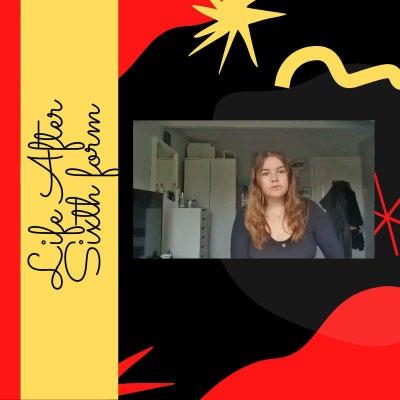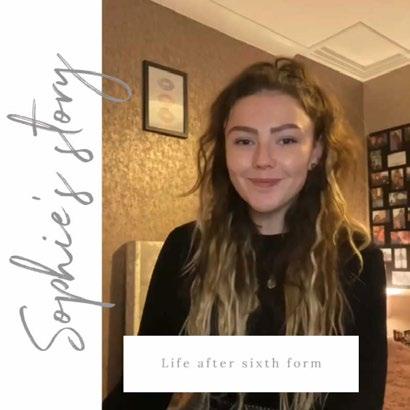St Margaret Ward Catholic Academy 6th Form Open Evening







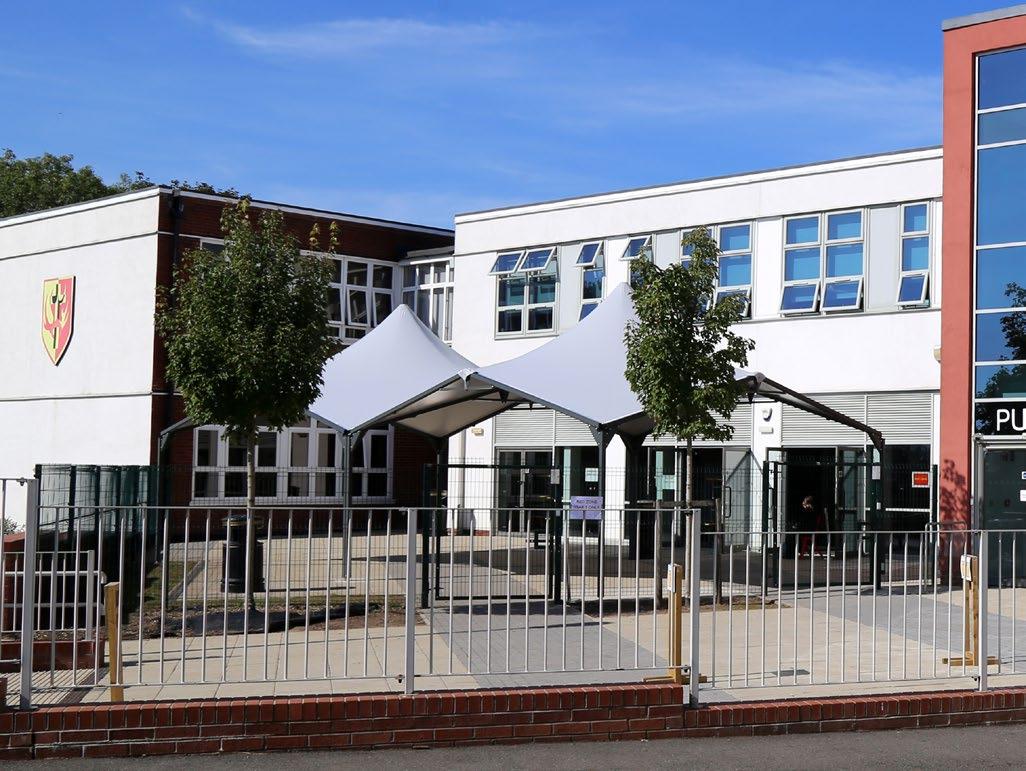
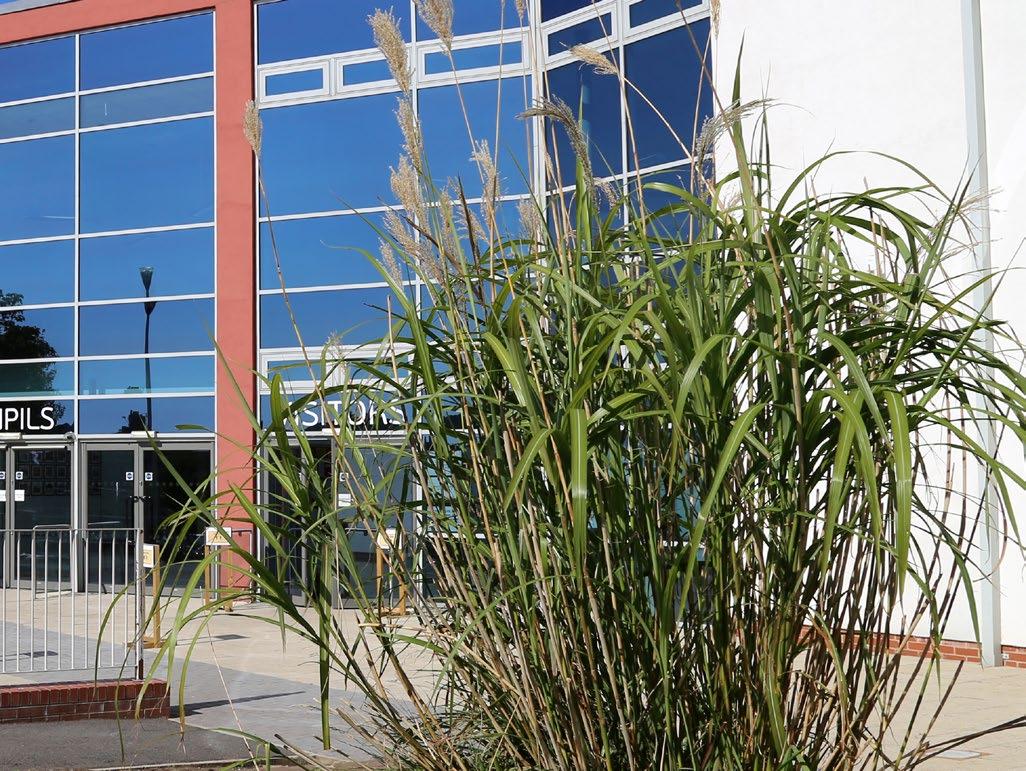
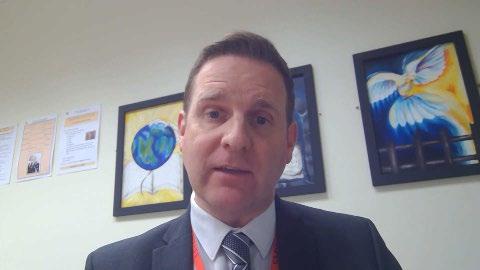
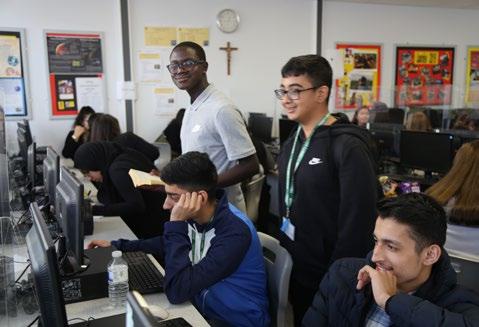
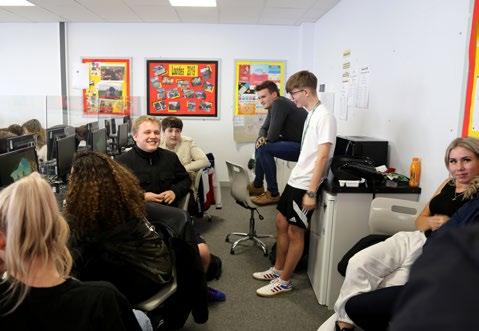

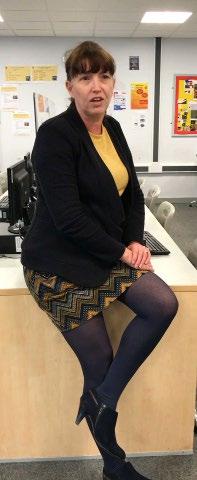
What is the level of course I will take?
Extended Certificate in Applied Science Level 3 with AQA
Who is this qualification for?A Level Art and Design with OCR. This qualification is aimed at learners who wish to progress to higher education and /or persue a career in the applied science sector.
What level GCSEs do I need?
4 GCSEs at grade 4 or above, including Science, Maths and English
A Level Art and Design with OCR.
“I have really enjoyed studying the first year of this course. It has allowed me to develop my passion for science and build on the knowledge I had acquired during GCSE’s. It will also allow me to fulfil my ambition to attend university at the end of Year 13. I would highly recommend it to any students wishing to undertake a science career.”
A Level Art and Design with OCR.
Applied Science is a broad-based qualification which gives a general vocational introduction to science. Candidates can experience the scientific environment through work experience, case studies, research and vocational visits. Learners will cover topics such as: Scientific principles associated with the application of Biology, Chemistry and Physics experimental and practical techniques the roles and skills of scientists, and hte public and media perception of science.
Each unit within the qualification has an applied purpose which acts as a focus for the learning in the unit.
Year 12 units studied
Three mandatory units:
Key concepts in science - written exam Applied experimental techniques - portfolio Science in the modern world - written exam with pre-release material
It is possible to certificate at the end of Year 12 with a Level 3 Certificate in Applied Science
Year 13 units studied
Two mandatory units plus an optional one: The human body - written exam Investigating science - portfolio Optional unit on Microbiology, Medical Physics or Organic Chemistry - portfolio
How will I be assessed?
A Level Art and Design with OCR. Portfiolio work 50% (33% in Year 12 and 66% in Year 13)
Written exams 50% ((66% in Year 12 and 33% in Year 13)
The course is graded using the Pass, Merit, Distiction and Distinction* system.
The Extended Certificate is equivalent to one A Level and the course carries UCAS points
How will the course help me after the Sixth Form?
This qualification has been developed in collaboration with higher education and other stakeholders in the science education sector. Therefore the knowledge and skills gained will provide the best possible opportunity for progress to higher education or employment
The course at St Thomas More is taught by three very experienced teachers who share 10 hours across two weeks.
Course undertaken at St Thomas MoreWhat is the level of course I will take?
A Level Art and Design with OCR. Fine Art Endorsement.


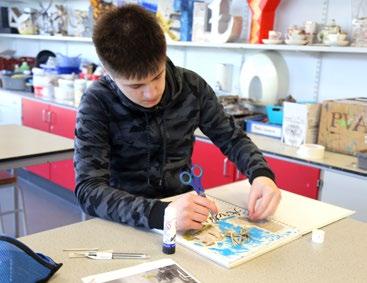
What level of GCSE ‘s might I need to take this course?
Minimum of 5 x GCSE grade 5’s including a Grade 6 minimum in GCSE Art.
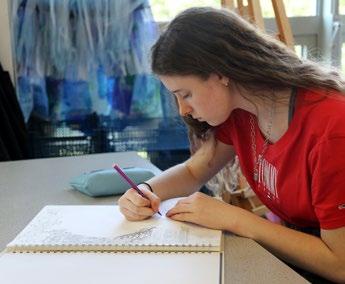
personal strengths and preferences as an artist. Whilst fulfilling the demands of the exam board.
We believe in allowing each student to develop as an individual artist, working in their own way.

and 40% examination. This means that continuous hard work will pay off. The ‘exam’ which is in fact an external
ly set task, is worked on over a period of around 4 months until completion in the examination. Staff will work very closely with students and give constant support .
At the beginning of the course all students follow the same course, divided into two areas, producing two separate bodies of work which will form the foundation of their coursework. This will include printmaking, mixed media experimentation, and the production of a visual art journal. Around Easter of year twelve students will negotiate their own brief for their portfolio and begin to develop work for this, and will then continue to work on their portfolios until January of the second year. We will teach you new skills and ways of working in the first term of the course, and then when you select your own focus to develop for your portfolio you will be able to work to your own
How will I be assessed?
Assessment takes place continuously throughout the course, including written and verbal feedback.
The A Level course is 60% coursework
How will the course help me after Sixth Form?
Art will give you many skills for future study. You will learn to be inventive, resourceful, independent and creative. You will problem solve, set your own briefs, and work with a wide variety of different media. You will develop confidence, resilience and a set of practical skills.


‘It’s brilliant. I love the supportive teachers, the facilities, and being creative.’
‘We get to explore lots of themes. You have lots of independence, but also lots of support from staff. I love it!’
‘It’s fantastic. It lets you express all the things you want to. I would do it all over again if I could.’
It’s a self influenced subject, quite relaxed in what you are able to do. It’s enjoyable and varied day to day.
I enjoy doing art at SMW because the staff are so supportive and always help you when you need it.
Miss Terry’s nice and a good teacher. The class is small and quiet. Getting the minibus is fine and the year 13s on the bus are nice.
knew it was the right choice. The staff are always supportive, and having an art technician is great.
Over the course we have learnt many interesting experimental techniques and have taken part in local art community projects like The Stoke 2000
I think arts in St Margaret Ward is very enjoyable. Teachers are very nice and supportive towards our ideas. It also gives us a chance to be creative and show our artistic skills. It is very broad as well: we get to try out a lot of different methods.
I think art as SMW has been very good so far. I have learnt new techniques and met new people.
Art is a lot of work, but rewarding
Very welcoming environment
I was apprehensive about coming to SMWCA to do art, but as soon as we started I
I’m enjoying the course. Both teachers have been extremely welcoming and the topic of Architecture has been good so far.
A level art is a great way to explore and develop yourself as an artist.
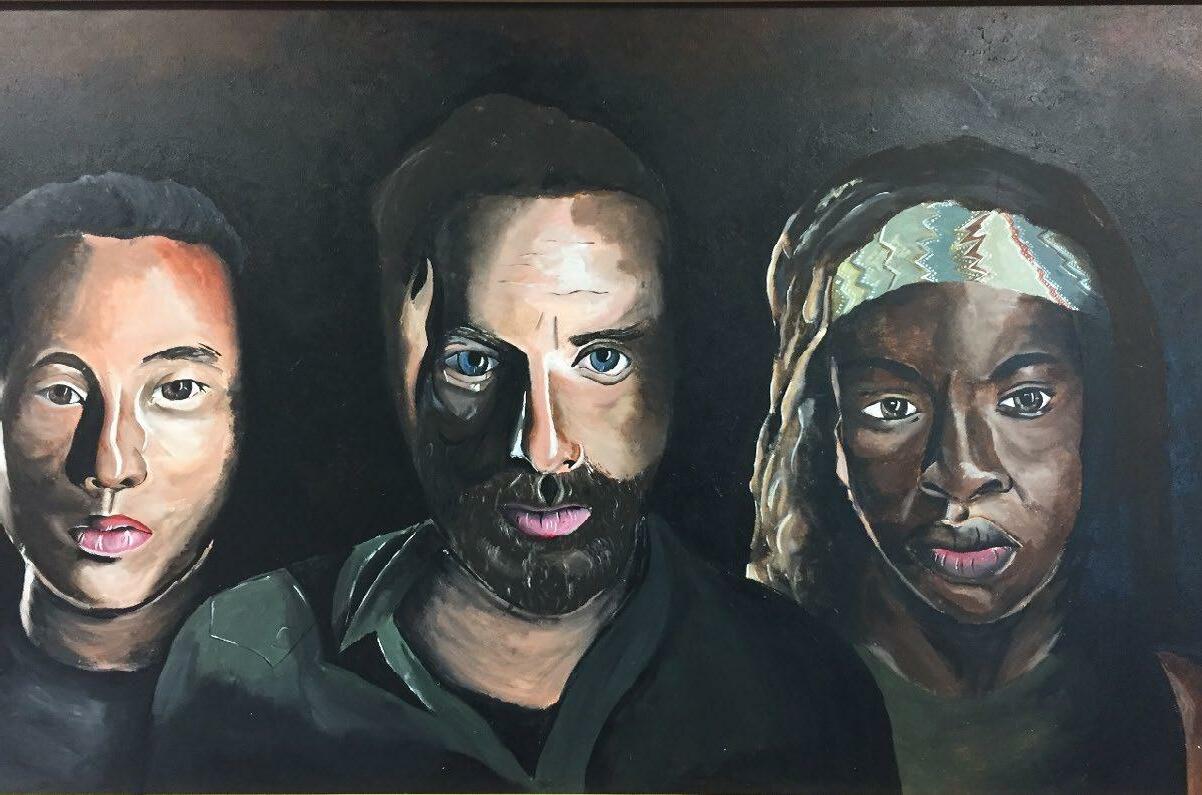
Miss Terry and Miss Leese teach A Level. The division of the 5 lessons is usually 3/2 split but can vary from year to year dependent on timetabling.
How much support will I get?
As much as you need. In addition to the art teachers we are also lucky to have an art technician Mr Cartwright, who frames your work, displays it and also prepares boards, armatures and anything else you need practical assistance with.
How will I use my personal strengths as an artist?
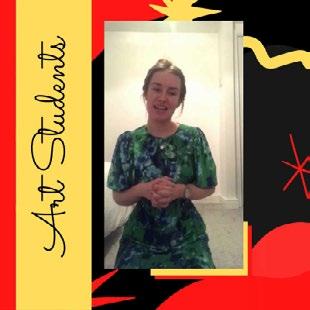
We will teach you new skills and ways of working in the first term of the course, and then when you select your own focus to develop for your portfolio you will be able to work to your own personal strengths and preferences as an artist. Whilst fulfilling the demands of the exam board. We believe in allowing each student to develop as an individual artist, working in their own way.
Where can I work on my practical art in school when I am free?
Sixth form artists are always welcome in the art rooms and you will be encouraged to spend your study periods working in them if they are empty.
When the rooms are all in use you will be welcome to come and work in with the classes studying, space permitting. We can always find room for you to work. In addition there are breakout spaces and Mr Cartwright’s room.
standard of written English. In addition there is an extended piece of writing in the form of an essay which is embedded in your coursework. This is between 1000-4000 words long, and so is about the average length of an essay in any other subject.
What type of student is best suited to study art at this level?
Hardworking, passionate and dedicated students who really want to do well, with a minimum of GCSE grade 6 at GCSE.
What skills can art give me for my future?
You will learn to be inventive, resourceful, independent and creative. You will problem solve, set your own briefs, and work with a wide variety of different media. You will develop confidence, resilience and a set of practical skills.
Any other questions?
How much of art is written?
You are expected to annotate your sketchbooks intelligently using a good
See art staff or email hterry@smwca. org.uk visit the SMWCA Art & design to look at the artwork we produce too.
What is the level of course I will take?
A Level Art and Design with OCR.
A Level with AQA
What level GCSEs do I need?
Minimum of 5 x GCSE grade 5’s including a Grade 6 GCSE Biology or Grade 6-6 in GCSE Combined Science
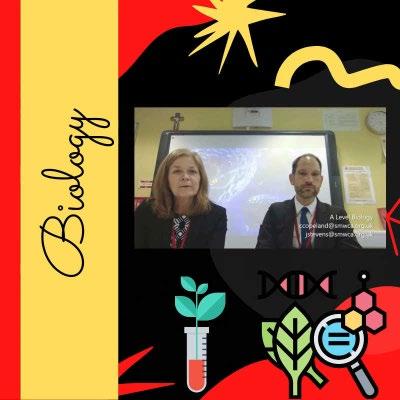
How will I be assessed?
A Level Art and Design with OCR.
3 written exams are in year 13
Throughout the 2 years students are also assessed for their practical skills. A pass in this is required by most Universities, regardless of your choice in course.
Written assessments include questions about practicals, a range of question types, including extended answers, comprehension, critical analysis and an essay.
A Level Art and Design with OCR. Biological molecules: Structure and function of the building blocks of life including monosaccharide’s, DNA, ATP
Cells: the structure of eukaryotic and prokaryotic cells and how scientists study them
Organisms exchange substances with their environment: Gas exchange, digestion and absorption and mass transport in plants Genetic information, variation and relationships between organisms: Cell division, mutations, protein synthesis, adaptations, diversity in environments
Energy transfers in and between organisms: Photosynthesis, respiration, food chains and nutrient cycles
Organisms respond to changes in their internal and external environments: Nervous coordination and homeostasis
Genetics, populations, evolution and ecosystems: Inheritance, evolution and ecosystems.
The control of gene expression: Transcription ,translation, recombinant DNA technology, DNA and cancer and DNA fingerprinting.
A Level Art and Design with OCR. All the teachers at A level are very experienced and eager to help with problems. Lessons are all laboratory based with many opportunities to develop practical and investigative skills. There are opportunities to learn in many different ways including presentations to the class, discussions, independent research and group work.
A Level Art and Design with OCR.
Careers for biologists exist in areas other than medicine, veterinary science, dentistry or farming. Biologists find employment in horticulture, pharmacy, biochemistry, microbiology, brewing and distilling. For courses in medicine and veterinary science it is not sufficient to be good at Biology, you must excel in all your sciences at A-level and across the board at GCSE. For medicine some universities require you to take Biology alongside the compulsory Chemistry A-level.
A Level Art and Design with OCR.
“This is when Biology really starts”
“This is a wonderful subject that explains many questions about our human body”
“Biology allows you to analyse underlying principles in greater depth providing an opportunity to develop”
Biology“Genuinely intriguing and fun”
n with OCR.
“Hello, my name is Lucy and I chose to do Biology as one of my A level subjects. I decided to choose biology because it’s an interesting subject which can lead to a wide range of great and successful careers. During my GCSEs I really enjoyed biology, especially learning about the topics relating to the human body and its functions. I decided that I wanted to expand my knowledge so I had a more in-depth understanding of what I learnt at GCSE. Learning about biology has meant that I now want to pursue a career in nursing, and a biology A level will provide me with the skills and education needed for nursing.
Biology is an incredibly content rich course which requires a lot of dedication and hard work, but it is also extremely rewarding when you begin to understand a topic which you had previously struggled on. My favourite parts of biology are when we do practicals, for example in y12 we did a heart dissection which allowed us to physically see the structure of a sheep heart in real life. I also like how biology easily relates to my other two subjects, chemistry and geography. It allows me to link topics across my subjects which gives me a deeper understanding of each topic. It provides many transferable skills, so that even if you don’t want to have a biology related career, it is not a waste. Furthermore, the teachers are always reliable and are always willing to explain concepts and give additional support throughout the year. Overall, if you chose biology as an A level you need to be prepared to work hard throughout the entire course. Learning about each topic is incredibly interesting and rewarding.”
“Doing A-Level Biology has really helped with my knowledge and understanding as a medical student. The Foundation of being a doctor is knowing your basic core knowledge which doing biology really helped me achieve. I felt like I was already at an advantage because once they taught us certain topics that we had already covered at A-Level it made more sense and was easier to see clinical relevance of diseases. My peers at Medical School who had not done Biology A-Level admitted that it would have been easier to understand the concepts better if they did.
In general, being a student of St Margaret Ward sixth form was a privilege, where all the staff especially the sixth form team and my A-Level teachers were extremely supportive. There was plenty of stress (I am sure any of my teachers can collaborate that!) but we worked through it together and ultimately, I achieved my goal of studying medicine at university. “ Malyka.
What is the level of course I will take?
A Level Business Studies with AQA.
What level of GCSE ‘s might I need to take this course?
5 x Grade 5 (and above) GCSEs
Student Comments
Business Studies is a fantastic subject and I’m glad I chose it!
Business studies is really interesting. It is difficult at first but Mr Dudley really helps in lessons
I didn’t do business studies at GQSE and even though it is a tough subject I’m really enjoying lessonJ and learning so much
is a business?
leadership
making
making
the strategic position of a business
strategic direction
Strategic methods: how to pursue strategies
Managing strategic change
will I be assessed?
During your studies you will undertake routine assessments during lessons. This will be at the end of a topic and will be based around a case study followed by exam style questions. These assessment will inform your working at grade as well as your predictions.
At the end of the two year course you will sit 3 synoptic written exam papers lasting 2 hours each.
How will the course help me after Sixth Form?
Studying towards a business A level will support you in your understanding of the world around you and allow you to critically analyse decisions from a number of different perspectives. A business studies
level is very popular with students who want to go onto university or take up degree apprenticeships.
What is the level of course I will take?
At St Margaret Ward we offer you the opportunity to take a BTEC in business which is equal to 1, 2 or 3 A ‘levels.
You will have timetabled time for the 1 or 2 A ‘level equivalents and support to complete the 3 A ‘level equivalent during your study time.
The 3 weighting we offer are; Extended Certificate Diploma Extended Diploma
What level GCSEs do I need?
A Level Art and Design with OCR. 5 x Grade 4 (and above) GCSEs
Designed with the real world in mindA Level Art and Design with OCR. The BTEC in Business course delivered at St Margaret Ward as part of the Trinity 6th form was designed with support from higher education and employers.
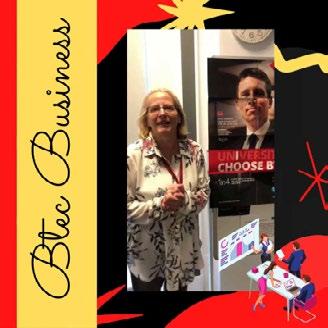
BTEC Nationals meet the needs of employers and higher education, so you can chose the right course to progress.
This means you can be confident these will be high quality course which the right balance of mandatory and optional content and a mix of assessment styles.
A Level Art and Design with OCR. Whilst there are mandatory units to be completed including Exploring Business Developing a Marketing Campaign Personal and Business Finance Managing an Event
There are optional units which have been developed to allow the qualification to become personalised to allow students to develop within their own interests.These include Accounting Law
Marketing HR Customer service Merchandising Social Responsibility Decision making Principles of management
The course has been developed to allow for students to undertake a personalised pathway rather than having to follow a set specification.
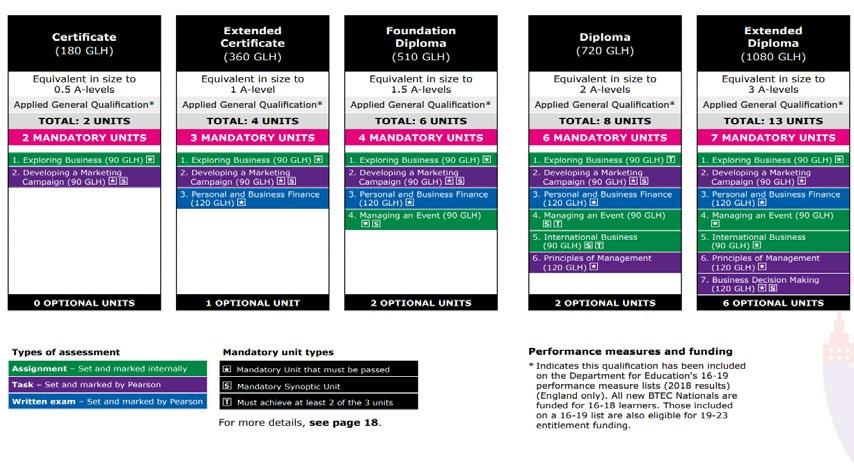
A Level Art and Design with OCR.
“Being assessed during the course, rather than in exams at the end of 2 years helped me to understand my progress”
“The skills I developed has helped enormously in my university course—from research, presentation to time management”
“I consider taking Business Studies as one of the most important subjects I have taken”
A Level Art and Design with OCR.
“Good universities don’t take BTEC’s!”
BTEC’s are widely supported. Students from this school and the other Trinity schools have been accepted and often offered bursaries into Russell Groups universities.
“If I take a BTEC I can’t do A ‘levels!”
With the flexibility to chose a weight which suits you can combine BTEC Business with traditional A ‘level subjects.
A Level Art and Design with OCR. You will learn through a range of methods including traditional lessons, presentations, individual and group research both online and using text books. Each lesson is designed to allow you to meet an assessment criteria for each unit being studied.
A range of real case studies are used as this subject/ qualification is about how and why real businesses are making the decisions they do today.
A Level Art and Design with OCR. The course is assessed through a mixture of internally and externally assessed units. The number of units to be studied depends on the weighting you are undertaking.
There is one ‘traditional’ exam “Personal and Business Finance”, whilst the other external assessments are based on a case study for which you have to develop your response during a set write up window. The remaining units are internally set and assessed.
How will the course help me after Sixth Form?
A Level Art and Design with OCR. As you will learn about a range of issues surrounding the world of business in the 21st Century developing a wide range of skills a BTEC Business qualification opens the door to a wide range of careers, further education and training. Previous students have gone on to university (including RG Universities) to study Law, Journalism, Sociology, Economics, Marketing, Sports Science. Other students have progressed onto higher level Apprenticeships and Management Training schemes.
A Level Art and Design with OCR. We are one of the top performing centres in the UK for Level 3 Business If you’ve any questions please speak to; Mr Quigley lquigley@smwca.org.uk Mrs Hancock Jhancock@smwca.org.uk
What is the level of course I will take?
A Level Chemistry with AQA.
What level of GCSE ‘s might I need to take this course?
Minimum of 5 x Grade 5’s in GCSEs plus Grade 6 at either Combined Science (6,6) or Chemistry. A strong pass (grade 6) in Maths is desirable. Written communication is also important and you’ll need to be a strong writer.
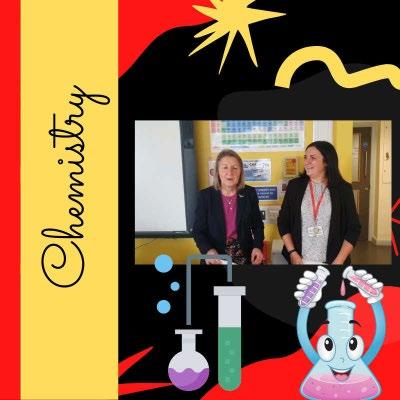
“My name is Qudsia. I am a first-year Biomedical Science student at Keele University. The concepts in Chemistry weren’t always the easiest to understand. I used to find Physical Chemistry the hardest to grasp but with the help techniques taught by the teachers (Mrs Whincup), I began to enjoy learning about Chemistry much more. My favourite part had to be Titrations and Nomenclature. I also loved doing practicals as they put into perspective the Chemistry that we had been taught. Overall, due to the class size being relatively small, it was easier to raise questions and have discussions about what we didn’t understand. I hope to work for the NHS.”
“My name is Liam and I studied chemistry at A-level when I was a student at St Margaret Ward.

to more theoretical ones such as predicting the outcome of chemical reactions.
One of the things that I enjoyed about studying chemistry was the mixture of theory and practical classes. Carrying out experiments provided me with the opportunity to apply the knowledge I had gained and see real (sometimes unexpected!) results.
In addition to chemistry, I also studied biology and physics at A-level. Having a greater understanding of chemistry helped me to better understand aspects of these other subjects. In turn, my other subjects helped to improve my understanding of certain aspects of chemistry.
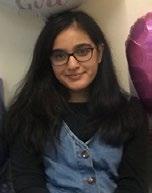
Another aspect that I enjoyed was how a broad range of topics was covered, ranging from concrete concepts such as physical structure of molecules
For anybody considering a future career involving the sciences, a background in chemistry will provide a good foundation from which to develop. For myself, chemistry has been essential for me to achieve my goals. After A-levels I studied a degree in Biomedical Science, where my chemistry and biology knowledge came together in the biochemistry modules that formed a large part of the course. Afterwards I was accepted to study Medicine and am now in my final year, graduating as a doctor in 2021.“
What is the level of course I will take?
BTEC Level 3 National Extended Certificate in Childrens Play, Learning and Development (equivalent to one A Level)
What level GCSEs do I need?
Minimum of 5 x Grade 4’s at GCSE
Subject Assessment
This subject is assessed through two external assessments (exams) and two pieces of coursework. There is one assessment for each unit
Why BTEC in CLPD?
A Level Art and Design with OCR. BTEC courses give you real, hands-on experience. ‘It’s what I call ‘learning by doing’ and gives you the skills today’s employers are looking for.”
PeterJones CBE, Entrepreneur
4 out of 5 BTEC
students go on to receive a First or Second class degree (The outcomes associated with the BTEC route of degree level acquisition, London Economics 2013)
37% of businesses prefer recruits to hold a mix of academic and vocational qualifications or value them equally
{Inspiring Growth: Pearson/Skills
Children’s Play, Learning and Development provides a broad basis of study of the early years sector (0 – 8 years), through assignments, tasks and written exams, as well as 50 hours of work experience. It is equivalent to ONE A Level.
The course helps develop skills such as:
• the ability to learn independently
• the ability to research actively and methodically
• being able to give presentations and being active group members
• the ability to develop transferable skills such as teamwork and communication
There are three mandatory units covering:
• children’s development (external exam)
• communication and numeracy (external task)
• play and learning (internal assessment)
One other internally assessed unit must be completed from: Physical development, care and health needs; Keeping children safe; The Early Years Foundation Stage
Further Informationig
Careers this qualification can lead to: Early years teacher, nursery worker, paediatric nurse, psychologist, social worker, teaching assistant and many more
Course undertaken at St John FisherWhat level of GCSE ‘s might I need to take this course?
Minimum of 5 x Grade 5’s at GCSE
How will I learn? Learning takes place by a variety of teaching and learning styles which include reading set texts, discussions, problem solving, independent research and group projects. Research will be undertaken through ICT facilities and there will be opportunities to present to peers. Audio visual materials are also used.
“I chose to study CIassics at A level because I am excited about discovering ancient cultures and societies. The blend of methodology architecture and art, philosophy, drama, history and literature from Ancient Greece and Rome makes it an enthralling subject. I particularly like seeing the·difference and similarities between our own.”
Izzy “I like Classics because it reveals the cultural shifts that shaped Western Civilisation. So many of our words, ideas and customs have their roots in Greece and Rome. It combines well with many other subjects whilst at the same time being unique.”
Lauryn
What is the level of course I will take?
A Level Classical Civilisation
• The history of Athenian democracy. How Athens was transformed to become the democracy on which all later systems are modelled. Students will read the works of various historians and study Greek comedy as part of this unit.
Students will take three examinations in Year 13. The exams will combine small factual answers with extended written answers. They will be based on visual and written sources and will require knowledge recall and evaluation. Additionally, you will be assessed throughout the course by time exam style questions.
·
• The epic tale The Iliad. This: is the story of the Greek hero Achilles, his feud with the king, Agamemnon, and his deadly battle with the Trojan prince, Hector. It is set during the Trojan war and includes a focus on the hero in Ancient Greek society and the role of the gods.
• The Roman epic The Aeneid. This tells the story of the founding of the Roman race by Aeneas, prince of Troy. It is also heavily influenced by the first Emperor Augustus and the recent Roman civil wars.
• Greek Theatre. How plays were organised and put on and the part they played in Athenian society. We also look at what the experience was like for the audience and will read a selection of Greek tragedies and comedies including Sophocles’ classic play, King Oedipus.
How will the course help me after Sixth Form?
Classics is a very well respected academic humanities A level. It provides excellent skills of analysis and communication which are invaluable for further study. Trinity College, Cambridge, ranked it among the most suitable A levels for university study. Classics provides a varied learning experience and a diversity of skills that students could take into the workplace - analysis, critical thinking, problem solving and independent research. It will also give you a broad understanding of where Western society and culture originated from.
Course undertaken at St John FisherAdvances in computing are transforming the way we work and our computer science specifications have changed with the times.
These specifications focus on the skills students need to progress to higher education or thrive in the workplace.
What is the level of course I will take?
A Level Computer Science (AQA 7517)
Fundamentals of programming
Fundamentals of data structures
Fundamentals of algorithms
Theory of computation
Fundamentals of data representation
Fundamentals of computer systems
Fundamentals of computer organisation and architecture
Consequences of uses of computing
Fundamentals of communication and networking
Fundamentals of databases
Big Data
Fundamentals of functional programming
Systematic approach to problem solving
Non-exam assessment - the computing practical project
What assessment will I take?
Paper 1 (40%) on-screen exam which tests the students ability to programme as well as their theoretical knowledge
Paper 2 (40%) written exam with short and extended answer questions
Non-exam assessment (20%) assesses the student’s ability to use the knowledge and skills gained through the course to solve or investigate a practical problem.
Course undertaken at St John FisherWhat is the level of course I will take?
A Level (AQA)
What level of GCSE ‘s might I need to take this course?
Minimum of 5 x Grade 5’s at GCSE
A passion for Dance and performing is essential. A grade 4 or above in English is desirable.
What will I learn?
“Having the opportunity to go and see so many dance companies is wonderful, it really helps me with my own technique and choreographic skills!”

I love the studio space”
“The staff are so helpful, they really care about our learning and really want us to do well. We enjoy the way it feels when we perform it’s so exciting!”
This course explores the form and context of Dance, it will develop your performance technique in the dance styles of Contemporary, Ballet, Jazz and Modern Dance. The course will enhance your knowledge and understanding of performance, choreographic techniques, safe practice and physical well-being. You will have the fantastic opportunity to work in an up to date purpose built dance studio, with access to professional lighting and sound equipment. You will also be part of a rich and varied programme of extra-curricular activities which includes participation in Contemporary Dance companies, Street Dance companies and you can partake in National events such as 0 Dance at the Regent Theatre and the UDO Street Dance championships to name but a few. We organise regular theatre trips to see National and International Dance companies. Shows recently seen include Rambert Dance Company, Matthew Bourne’s New Adventures in Motion Pictures and Ballet Boyz as well as trips to London’s West End to see world class Musical Theatre and participate in workshops at Pineapple Dance Studios. Students have the opportunity to perform in various performance evenings both at St Margaret Ward, at local theatres and within the wider community. We enter students for the Dance Leaders Qualification which is a national teaching qualification that enables students to plan and lead dance workshops and clubs to students from other year groups. We also have extensive links with Universities and professional Dance companies which leads to collaborative work, workshops and professional performance experiences.
Dance is taught within an established and successful department. It is an exciting course that develops you as a practitioner, performer and choreographer of Dance. Students learn primarily through practical workshops with additional theoretical lectures and discussions on Dance history and context. Since the course was established in 2003, we have enjoyed a 100% pass rate. We work on individual learning programmes and offer extensive support to ensure you reach your potential.
Choreography (Comp1) - Over the 2 years you will create a group choreography performed in a live setting.
Critical Engagement (Comp2, Dance Theory) - You will be assessed through a written exam at the end of your course. This will be based on your area of study, either Ballet, Jazz, Modern Dance and Contemporary and the Set Works.
Component 1—Weighted at 50% of your overall mark. Component 2—Weighted at 50% of your overall mark.
There are three elements to the course - Performance, Choreography and Critical Engagement (Dance Theory).
Continual assessment of dance work, both practical and written, takes place on a one-to-one basis. Constant verbal assessment and advice will help you to improve your technique, performance and choreographic skills.

Performance (Comp1) - You will be required to perform solo works and performances in a quartet across your 2 year programme and will take part in dance technique classes in your chosen dance style.
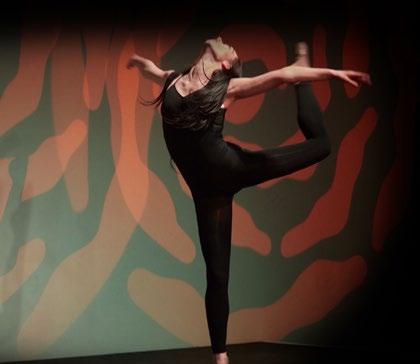
Dance is a powerful and inspiring subject that encourages students to develop their creative, physical, emotional and intellectual capacity, regardless of their previous experience in the subject.

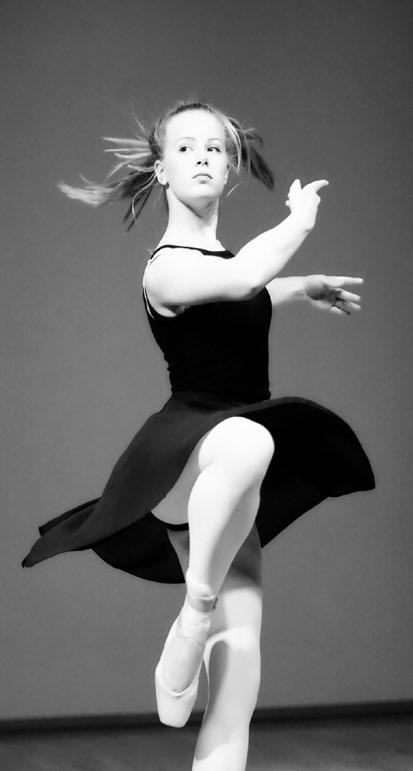
The study of Dance enables students to develop socially whilst promoting creativity, fitness and well-being. As students become performers, they will develop their confidence, self-esteem and team working skills. Studying Dance gives you the opportunity to develop lifelong skills such; as leadership; confidence; the ability to meet deadlines and the ability to motivate yourself and others, giving you the employability skills and experience to better prepare you for the demands of higher education or the workplace.
The research and written element of the course will develop a students’ appreciation for the art form and an understanding of the historical and cultural contexts in which it lies. Our past students have gone on to study Degrees at various Universities including; Manchester Metropolitan University, Liverpool John Moores University and The University of Roehampton.
There are three elements to the course - Performance, Choreography and Critical Engagement (Dance Theory).

Performance (Comp1) - You will be required to perform solo works and performances in a quartet across your 2 year programme and will take part in dance technique classes in your chosen dance style. Choreography (Comp1) - Over the 2 years you will create a group choreography performed in a live setting.
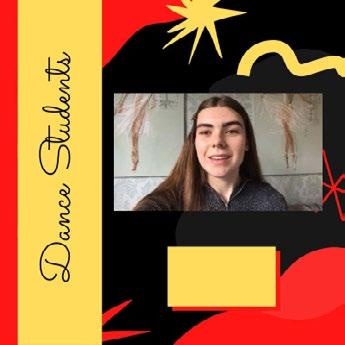
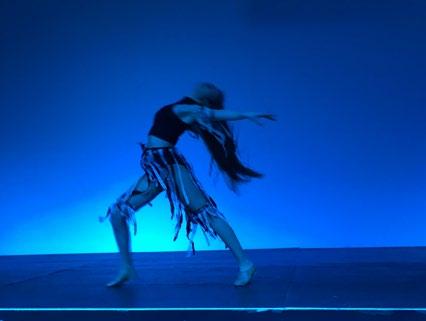
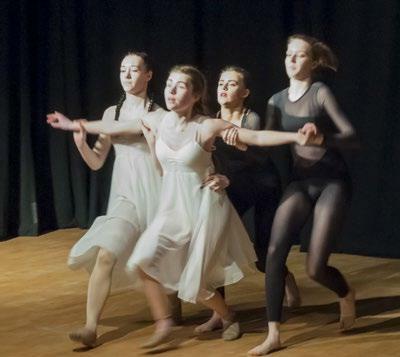
Critical Engagement (Comp2, Dance Theo-
ry) - You will be assessed through a written exam at the end of your course. This will be based on your area of study, either Ballet, Jazz, Modern Dance and Contemporary and the Set Works. Component 1—Weighted at 50% of your overall mark. Component 2—Weighted at 50% of your overall mark. Continual assessment of dance work, both practical and written, takes place on a one-toone basis. Constant verbal assessment and advice will help you to improve your technique, performance and choreographic skills.
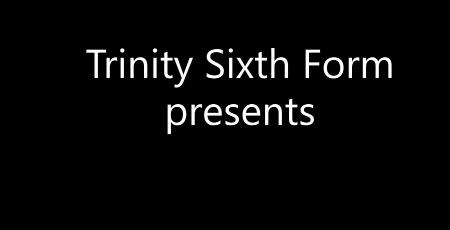
A Level Art and Design with OCR. An ideal course for those with a passion and interest in Drama, Theatre and Performance. Both a practical and academically demanding course.

What is the level of course I will take?
A Level Drama and Theatre (AQA 7262)

Throughout the course of study, students will create, rehearse and perform in both a scripted and devised performance, taking creative responsibility for co-ordinating the full lighting, set and costume required for their performances.
What level GCSEs do I need?
A Level Art and Design with OCR. Minimum of 5 x Grade 5’s at GCSE
Throughout both processes students will learn about influential theatre practitioners and theatrical styles. Students will also study a wide range of texts from different historic periods, exploring each text through a mix of practical workshops and theory lessons. This enables students to analyse texts and decide how they would direct and stage them, in preparation for their written examination. These texts are taught through practical workshops, giving students the chance to visualise staging options.
The final element of the course focuses on students watching live theatre performances and evaluating each production they see. This enjoyable part of the course allows students to see many different productions across the country, exposing them to a varied range of plays and theatrical styles.
How will the course help me after Sixth Form?
A Level Art and Design with OCR. Vocational Opportunities:
There are many honours degree and diploma courses in practical and theoretical drama. Students can go on to study practical acting courses and then pursue a career in theatre. Similarly, there are many opportunities available to study technical theatre.

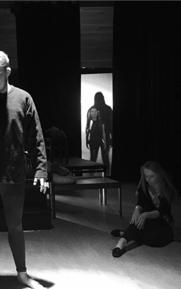

The majority of courses are BA honours degrees, accredited by well known universities.
Drama and Theatre Studies helps to promote many skills invaluable in the work place. Many students go on to study courses such as law, marketing, teaching and politics, having gained the confidence and skills to present effectively to an audience. The team building skills inherent in the subject are also highly regarded in those fields dependent on effective cooperation and networking.

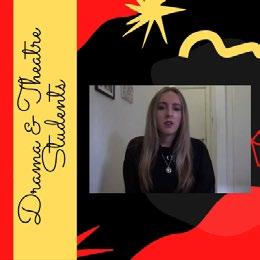
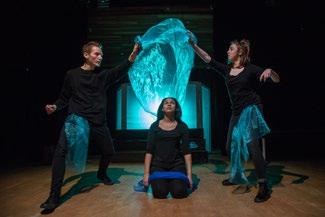
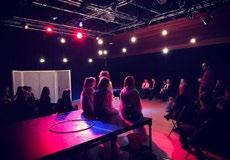

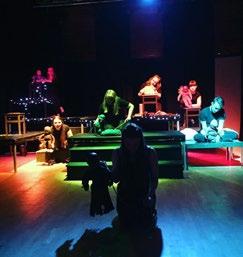
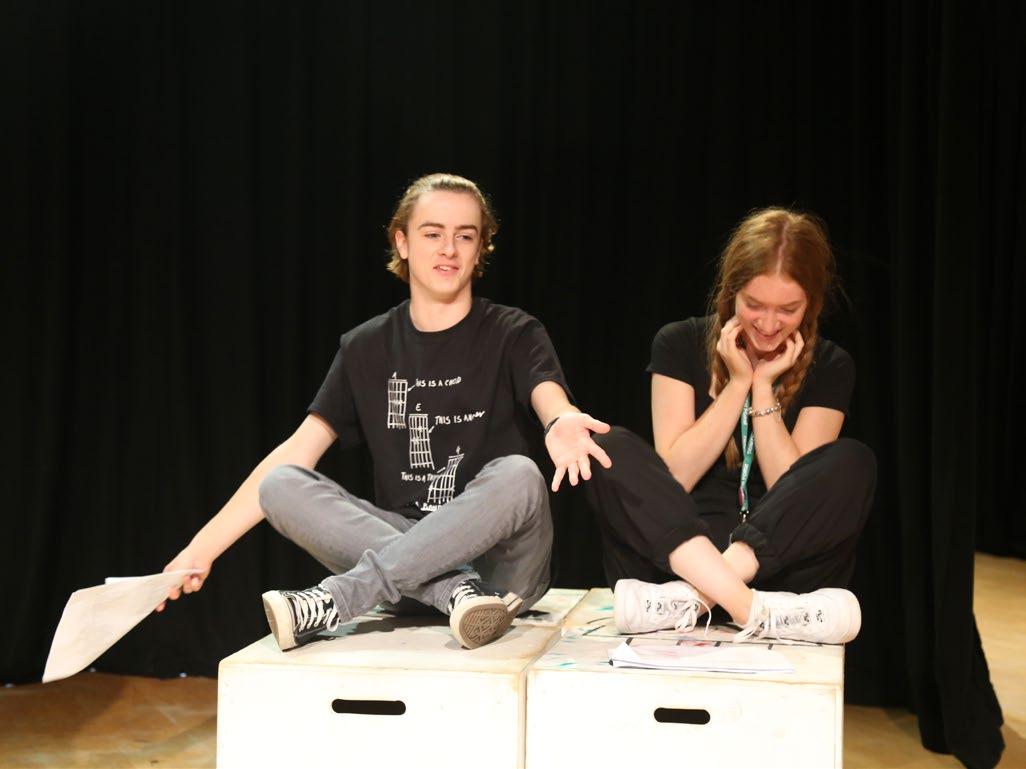
““I always loved Drama! It helped me gain confidence to stand up in front of loads of people, which helps me at uni as I’m not scared to teach a full class of children!” - Imogen
“I learnt so much through the plays we studied” - Isobel
“Drama was a godsend to me, it enabled me to express myself and grow into the person I am today. I’m now enjoying my second year of my psychology and counselling degree” - Lauren
What is the level of the course I will take?
A Level English Language (AQA 7702)
What level GCSEs do I need?
Minimum of 5 x Grade 5’s at GCSE and a minimum Grade 6 in English Langauage
What will I learn?
Textual variations and representations, Children’s language development, Language diversity and change, Language discourses, Language investigation, Original writing
The topics and titles of the subject content reflect a possible trajectory through the course, with ‘Language, the Individual and Society’ focusing on individual and immediate social contexts for language, and ‘Language Diversity and Change’ working outwards to consider larger-scale public discourses about change and variety, drawing on regional, ethnic, national and global Englishes. However, it would be just as viable to start with the bigger questions about language use in ‘Language Diversity and Change’ and end closer to home in ‘Language, the Individual and Society’.
The A-level English Language specification offers opportunities for students to develop their subject expertise by engaging creatively and critically with a wide range of texts and discourses. Students will create texts and reflect critically on their own processes of production, while analysing the texts produced by others. The specification explores the study of English Language both as a medium of communication and as a topic in its own right, with an emphasis on the ability of students to pursue lines of enquiry, debate different views, and work independently to research aspects of language in use. Language is seen as a creative tool for expression and social connection, as well as for individual cognition. The study of language as a symbolic system used to assert power in society is also fundamental to the scope of this specification.
You will learn in a variety of ways. Some of the lessons are taught, some involve class and group discussion. You will need to do research and reading to help with your studies. The coursework elements allow the courses to be quite personalized. You will need to do independent work and research for this.
English Language classes are full of discussion and reflection and are quite interactive and hands-on for a subject that demands written outcomes for assessment.
Two written exams (40% each) and non-exam assessment (20%) where students produce a language investigation and a piece of original writing and commentary where there is scope for students to pursue their own independent lines of enquiry and topics for writing, with support from their teachers.
How will the course help me after Sixth Form?
English Language is an interesting course and many of our students go on to study an English based degree such as journalism and creative writing. It is a good route into degrees in psychology, law and education too. English Language will demonstrate that you have excellent written communication skills.
“Studying A level English Language has been thoroughly enjoyable. We have covered a wide range of intriguing topics. The standard of reading is second to none and has helped me dramatically with taking my interest in the subject to University level”
Michael
“As part of the English Language A Level I have studied Child Language Acquisition. This is a module that I thoroughly enjoy as it links to how and when children develop reading, writing and speaking skills”
Lauren
Course undertaken at St John FisherWhat is the level of course I will take?
What level GCSEs do I need?
Minimum of 5 x Grade 5’s at GCSE including a minimum Grade 6 in English Literature and Grade 5 in English Langauge
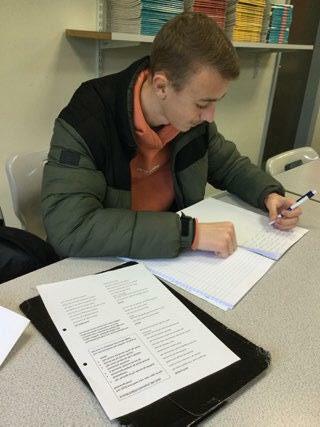
A Level Art and Design with OCR.
English Literature historicist approach to the study of literature rests upon reading texts within a shared context. Working from the belief that no text exists in isolation but is the product of the time in which it was produced, English Literature encourages students to explore the relationships that exist between texts and the contexts within which they are written, received and understood.
Studying texts within a shared context enables students to investigate and connect them, drawing out patterns of similarity and difference using a variety of reading strategies and perspectives.
English Literature privileges the process of making autonomous meaning, encouraging students to debate and challenge the interpretations of other readers as they develop their own informed personal responses.
Love Through the Ages, Shakespeare—The Taming of the Shrew, Unseen Poetry, Wuthering Heights by Emily Bronte, a collection of modern love poetry, modern Times:literature from 1945 to the present day, A Streetcar Named Desire by Tennessee Williams, Skirrid Hill by Owen Sheers and The Color Purple by Alice Walker, Unseen Prose.
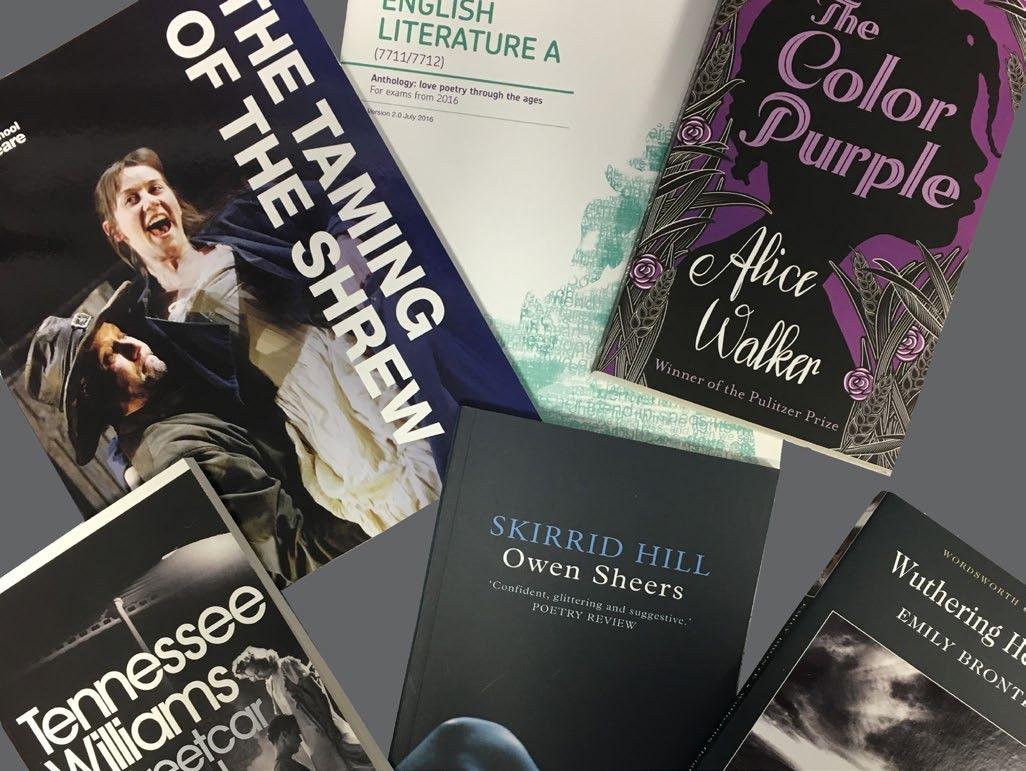
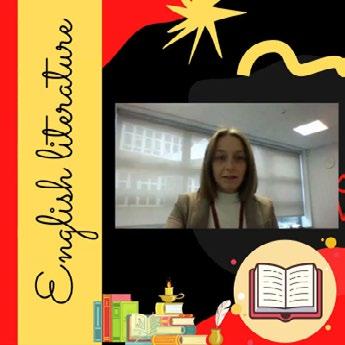
A Level Art and Design with OCR.
“ English Literature A Level has really built on the skills I developed at GCSE. I have really enjoyed the focus on modern literature for Paper 2.”
“One of the great aspects of the course is how you can build in your own literary interests. I loved that I was able to tailor the NEA to include a theme I was interested in and a text of my choice.”
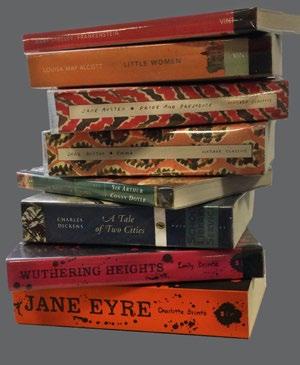
“The discussion element of the lessons really helps me to think about my own responses. We are encouraged to share ideas and opinions and feel confident in lessons to challenge our ideas and beliefs.”
How will the course help me after Sixth Form?
A Level Art and Design with OCR.
English Literature is a fascinating course and many of our students go on to study it at degree level. As an academic subject, it is also a long established route into degrees such as Law, History and Politics.
Having an A Level in English Literature will demonstrate that you have excellent written communication skills and sharp analytical ability.
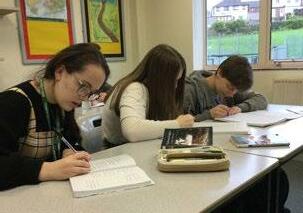
How will I be assessed?
A Level Art and Design with OCR. Examinations:
Paper 1: Love Through the Ages. 3 hours
Open book in Section C 40% of final mark
Paper 2: Texts in Shared Contexts. Modern Times: Literature from 1945 to the present day. 2 hours 30 minutes Open book 40% of final mark
Coursework:
Non-examined Assessment (NEA)
One 2500 comparative essay. Assessed in school. 20% of final mark
This compares two texts. One text is ‘taught’ the other is chosen by the student. The task is formulat ed by the student in discussion with the teacher.
For further information see Ms Gould, Mrs Mills or Miss Smith
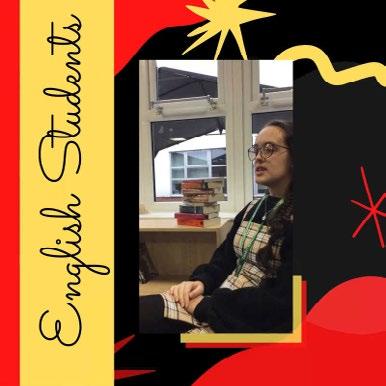
What is the level of the course I will take?
What level GCSEs do I need?
Minimum of 5 x Grade 5’s at GCSE and a minimum Grade 6 in GCSE French

What will I learn?
The A-level specification builds on the knowledge, understanding and skills gained at GCSE. It constitutes an integrated study with a focus on language, culture and society. It fosters a range of transferable skills including communication, critical thinking, research skills and creativity, which are valuable to the individual and society. The content is suitable for students who wish to progress to employment or further study, including a modern languages degree.
The approach is a focus on how French-speaking society has been shaped, socially and culturally, and how it continues to change. In the first year, aspects of the social context are studied, together with aspects of the artistic life of French-speaking countries. In the second year further aspects of the social background are covered, this time focusing on issues such as life for those on the margins of French-speaking society as well as looking at the positive influences that diversity brings. Students also study aspects of the political landscape in a French-speaking country, looking at immigration from the political perspective and at the way in which political power is expressed through action such as strikes and demonstrations. Teenagers and the extent to which they are politically engaged looks towards the future of political life in French-speaking society. Students will develop their knowledge and understanding of themes relating to the culture and society of countries where French is spoken, and their language skills. They will do this by using authentic spoken and written sources in French. The choice of works (literary texts and films) offers opportunities to link with the themes so that for example Life for the marginalised could be studied in conjunction with the book No et moi whilst aspects of Politics and immigration are reflected in the book Kiffe kiffe demain and in the films La Haine and Entre les murs.
Students will build upon those language skills gained at GCSE level. We aim to enable our students to analyse, discuss and establish their own thoughts and views on the subject matter, whilst encouraging them to become involved in wider reading in order to keep up with daily life in France. Lessons include the opportunity to listen for key detail, to read articles and feed back to peers and to speak and give their opinions on topics, through debates and in discussion with the native language assistant. In every lesson there is an opportunity to re-visit previous topics through games and puzzle-solving.
A-level exams in French include questions that allow students to demonstrate their ability to:
• draw together their knowledge, skills and understanding from across the full course of study
• provide extended responses Paper 1 – Listening, reading and writing (50%) Paper 2 – Writing (20%) Paper 3 – Speaking (30%)
There is no doubt about it; having a language is viewed as highly favourable amongst employers. It demonstrates that you are not only a good communicator, but also able to listen effectively. You could take these skills into any field of work such as Law, Medicine, Teaching, Politics and Business and Marketing to name a few.
“Having a modern language makes you very employable after you leave school”
“My grammar has improved along with my knowledge of French culture. This has boosted my self-confidence, which has had a good effect on my other subjects”
How will the course help me after Sixth Form?Course undertaken at St John Fisher
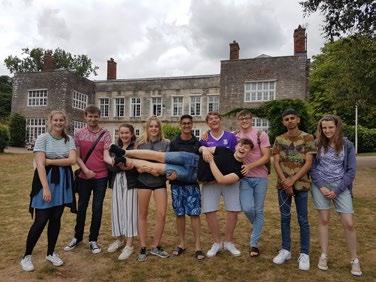
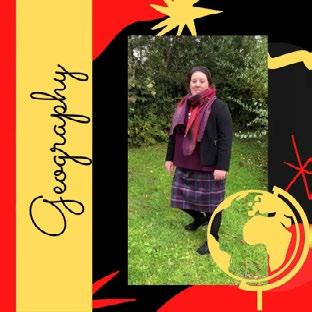

“I love geography, it’s my favourite subject and I am really excited to study it at degree level!”
“Lessons are really fun—the teachers are relaxed which encourages us to express our own ideas and opinions”
“Staff are really supportive, approachable and professional —they always have time to help with any issues we may have.”
“I’m not surprised so many former students keep in touch!”
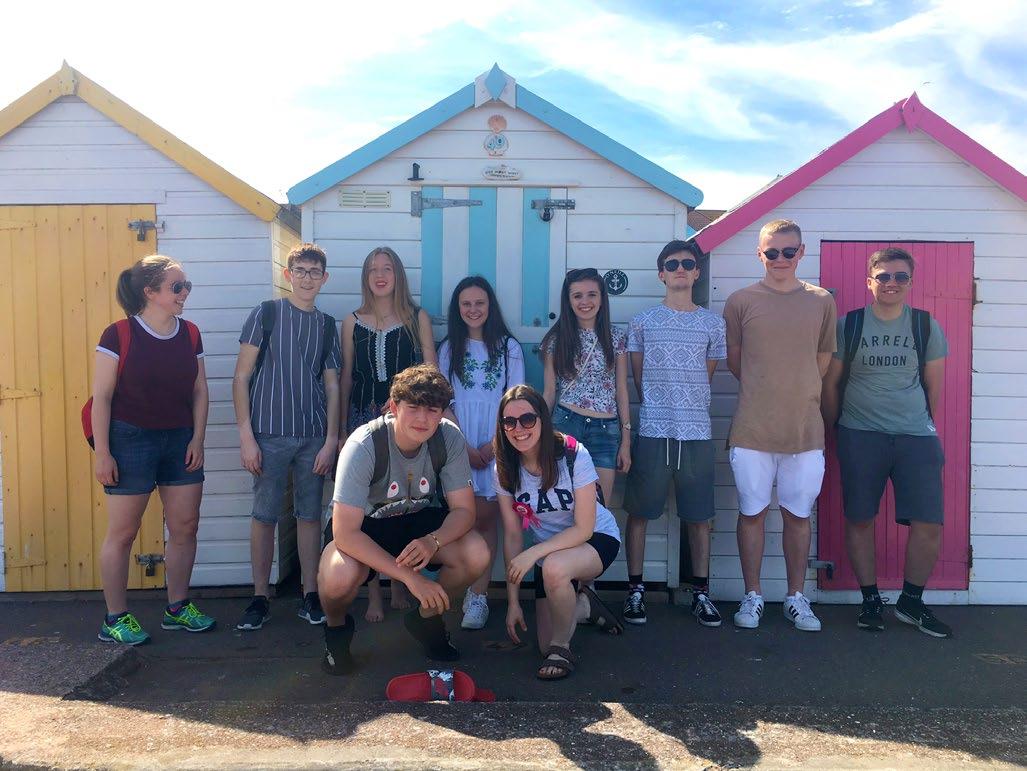
A Level Art and Design with OCR. Geography prepares young people with the knowledge, skills and understanding to make sense of their world and to face the challenges that will shape our societies and environments at the local, national and global scales’ RGS
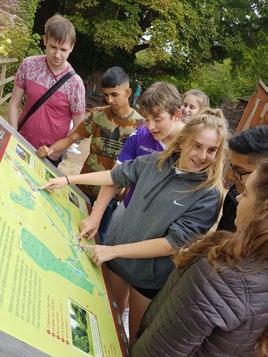
Former A-Level geography students are successfully pursuing careers as lawyers, town planners, government policy advisors, midwives, teachers, engineers and business consultants.
6 x 50 minute lessons a week, split between two specialist teachers
• All of the taught units are extremely topical and student learning is supported by a range of independent research from geographical journals, news articles, books, film, literature and music.
• Lessons are interactive with an emphasis on discussion of core material and practical elements where appropriateyou even get to play with play dough!
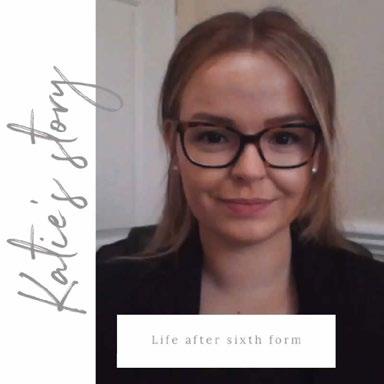
What is the level of the course I will take?
What level GCSEs do I need?
Minimum of 5 x Grade 5’s at GCSE and a minimum Grade 6 in GCSE German
What will I learn?
The A-level specification builds on the knowledge, understanding and skills gained at GCSE. It constitutes an integrated study with a focus on language, culture and society. It fosters a range of transferable skills including communication, critical thinking, research skills and creativity, which are valuable to the individual and to society. The content is suitable for students who wish to progress to employment or to further study, including a modern languages degree.
The approach is a focus on how German-speaking society has been shaped socially and culturally and how it continues to change. In the first year, aspects of the social context are studied, together with aspects of the artistic life of German-speaking countries. In the second year, further aspects of the social background are covered, alongside the German political landscape, both in relation to Germany itself and its place in Europe. The past and its role in shaping the present is viewed through the reunification and its consequences while the focus on young people and politics looks forward to shaping the future of German-speaking countries.
Students will develop their knowledge and understanding of themes relating to the culture and society of countries where German is spoken, and their language skills. They will do this by using authentic spoken and written sources in German.

The choice of works (literary texts and films) offers opportunities to link with the themes so that for example aspects of Die Wiedervereinigung are relevant to the film Das Leben der Anderen and aspects of Multiculturalism in German-speaking society are reflected in the novel Das Fundbüro
by Siegfried Lenz.The four skills of listening, speaking, reading and writing are practised in every topic area. All basic grammar rules are re-visited and new grammatical concepts are integrated into the topic areas. The learning of irregular verbs and vocabulary is also essential. The use of internet sites, German television programmes, books, newspapers and magazines are necessary to improve research skills outside the classroom. Through the individual research project, analytical and summarising skills will be developed.
How will I be assessed?
A-level exams in German include questions that allow students to demonstrate their ability to:
• draw together their knowledge, skills and understanding from across the full course of study
• provide extended responses
Paper 1 – Listening, reading and writing (50%) Paper 2 – Writing (20%) Paper 3 – Speaking (30%)
How will the course help me after Sixth Form?
An A Level in German is a highly regarded, academic qualification towards university entrance requirements. Germany is vital to the UK as a trading partner, and having good language skills will considerably widen your employment prospects. In many employment fields such as Marketing, Finance, Tourism at least one modern language is a must. It is an extra skill which will set you apart from other job applicants.
“In A Level German you cover a wide range of subjects and issues in much more depth than GCSE and you are encouraged to give your own opinions on these. I also enjoy learning about other cultures”
“Nice working environment”
“You can talk to an extra 98 million people
Course undertaken at St John FisherWhat is the level of the course I will take?
BTEC Level 3 National Extended Certificate in Health and Social Care (equivalent to 1 A Level) or
BTEC Level 3 National Extended Diploma in Health and Social Care (equivalent to 3 A Levels)
What level GCSEs do I need?
Minimum of 5 x Grade 5’s at GCSE
Why Health and Social?

The NHS employs 1.4 million people and social care 1.6 million people in the UK

There are more jobs than people trained to do them!
It is a growing industry with more demand for employees year on year.
A Level Art and Design with OCR. Health and Social Care is a very broad subject area. It pulls together many different disciplines to help us understand people and their needs. It combines biology, sociology, psychology, nutrition, and ethics. If you want to pursue a career in Health and Social Care, you will be working in a sector that is dedicated to helping other people, and improving their lives. It is an incredibly rewarding and fulfilling career path.
BTEC Nationals are accepted by many universities worldwide as A-level equivalents. Employers and universities highly value the practical, real-world skills BTEC Nationals learners demonstrate. It will lay the foundations for your future career.
Extended Certificate in Health and Social Care
Ideal for learners who want balance A levels and BTEC qualifications as this is equivalent to 1 A Level
4 units of which 3 are mandatory
Human Lifespan Development - Exam Working in Health and Social Care – Exam Meeting Individual Care and Support Needs - Coursework Plus one option module (e.g. Nutritional Health or Promoting Public Health)
Extended Diploma in Health and Social Care
Ideal for those wishing to specialise in Health and Social Care as this is equivalent to 3 A Levels
13 units of which 8 are Mandatory
Human Lifespan Development - Exam Working in Health and Social Care – Exam Anatomy and Physiology for Health and Social CareExam Enquiries into Current Research in Health and Social Care – Exam
Meeting Individual Care and Support Needs - Coursework Work Experience in Health and Social Care Principles of Safe Practice in Health and Social CareCoursework
Promoting Public Health – Coursework Plus four other option coursework modules.
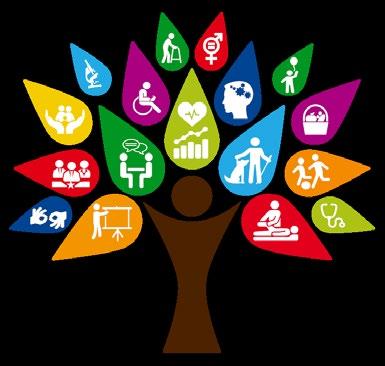
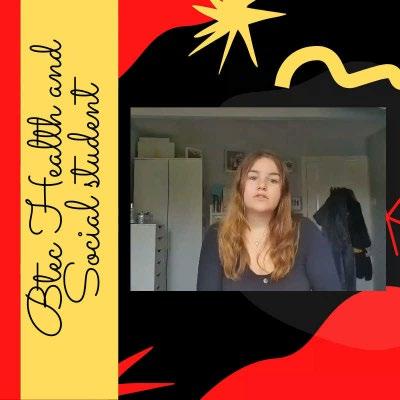
How will I be assessed?
A Level Art and Design with OCR.
Your understanding will be assessed through a mix of exams, set tasks and assignments set by your teacher.
When?
• Exam timetables vary, but usually you will sit exams and set tasks in January and May/June.
• Your teacher may set assignments for you at any time in the year.
Can I re-sit exams?
• If you don’t pass an exam, you have two opportunities to resit.
How will the course help me after Sixth Form?
A Level Art and Design with OCR.

A BTEC in Health and Social Care can give you the practical skills and knowledge to progress to your chosen career. With qualifications designed for working in the healthcare sector, your BTEC can prepare you for real-life working experiences.

Varied health and social care sector roles are available such as Nurse, Midwife, Social Worker, Youth Worker, Psychologist, Healthcare Asssistant, Support Worker, Occupational Therapist, Physiotherapist, Speech and Language Therapist.
Get financial help to study!
Social Work Bursaries are non-repayable and can be used to help with study and living costs.
Undergraduates can apply for a Social Work Bursary from their second year. The basic bursary rate for 2019/20 is £4,862.50 if you attend a university outside of London, and £5,262.50 if you attend a university inside the capital.
Nursing students from September 2020 will receive a payment of at least £5000 per year that they will not need to pay back
What is the level of the course I will take?
Cambridge Technical Certificate/Extended Certificate in Health and Social Care (OCR)
Assessment for Certificate
6 units 3 exams 3 peices of coursework
Summary of Certificate
This qualification offers a broad curriculum and is excellent preparation for a career in any health, social or childcare profession. Many students who prefer modular work and coursework take this course, there are 6 units to study 3 exams and 3 pieces of coursework. The grades, experiences and UCAS points achieved will enable you to access a university course, employment or apprenticeship whether or not they are related to Health and Social Care.
The topics we study include; how to communicate effectively, how to ensure people are treated equally, how to keep all people safe, how the body works and how health problems are treated and how to recognise and support people with mental health conditions. You will develop a range of skills on this course, including the application of evidence and arguments to real life scenarios, the analysis and evaluation of a variety of issues such as laws, polices, treatments and strategies. You will also develop further your ability to work independently and your time management skills. Unit Grades generate points which are added together to determine the overall grade. Pass (E) Merit (C) Distinction (A) or Distinction* (A*) Careers this qualification can lead to: Any in the health, social or childcare sector. Education, therapists such as physiotherapist or speech and language, nursing and midwifery, social work.
This qualification offers a broad curriculum and is excellent preparation for a career in any health, social or childcare profession. Many students who prefer modular work and coursework take this course, there are 6 units to study in addition to the 6 studied on the single award 2 exams and 4 pieces of coursework. The grades, experiences and UCAS points achieved will enable you to access a university course, employment or apprenticeship whether or not they are related to Health and Social Care.
In addition to the topics studied through the single award we also study; how to keep vulnerable people safe, how to support people who display challenging behaviours, how to prevent the spread of infections, the benefits of taking a person centred approach to care, ways to promote a healthy lifestyle and how understanding the human mind can impact upon health.
You will develop a range of skills on this course including the application of evidence and arguments to real life scenarios, the analysis and evaluation of a variety of issues such as laws, polices, treatments and strategies. You will also develop further your ability to work independently and your time management skills. Grades Points are added together with those achieved on the single award and range from Pass Pass (EE) to Distinction* Distinction* (A* A*)
Careers this qualification can lead to: Any in the health, social or childcare sector. Education, therapists such as physiotherapist or speech and language, nursing and midwifery, social work.
Course undertaken at St Thomas MoreWhat is the level of course I will take?
A Level History (AQA 7042)
Course content dependant on Trinity school studied at. What level GCSEs do I need?
Minimum of 5 x Grade 5’s at GCSE
There is no requirement to have studied this at GCSE, but please speak to a member of staff
How will I be assessed?
A Level Art and Design with OCR. Regular in-house assessments built around the exam are used to teach skills and measure progress and students also sit formal mock exams. However, other opportunities exist to show knowledge and understanding including formal presentations, debates and peer assessments.
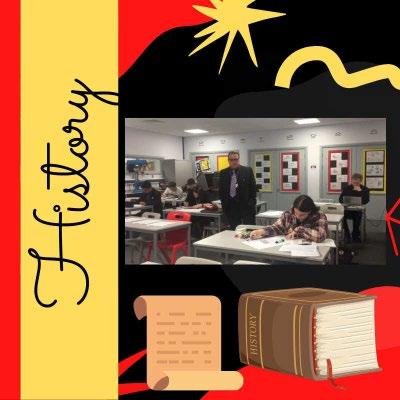
A Level Art and Design with OCR. The Making of Modern Britain 1951 – 2007 (depth study)
This unit focusses on the key political, social, economic and international changes that helped shaped Britain in the second half of the Twentieth Century. To do this we will explore concepts uch as class, social division, cultural change and the impact of international events.

Y12 focus 1951 -79. Content sample: Post war settlement. Consensus. 1960’s Britain social change. The Cold War. Britain, America and Vietnam. 1970’s the breakdown of consensus. 1979 the election of Margaret Thatcher.
Y13 focus 1979 – 2007. Thatcherism. Industrial decline. Falkland’s war. The split in Labour and the formation of the SDP. Mass unemployment /changes in society. Miners’ strike 8485. Thatcher as an international figure. Relations with America. Labour under Kinnock. John Major and Conservatism. Northern Ireland. Sleaze and the end of Tory rule. The election and leadership of Blair. Change and continuity across this period.
The making of a Super Power… America 1865 -1975 (breadth study)
This unit offers a breadth study of America between the dates shown.

Y12 focus: From Abraham Lincoln and the Civil War to Wilson and WW1. The political weakness of presidents. Political corruption. Racism and social division between the North and South. How united was America during this phase? The growth of big business and the emergence of the USA as a dominant economic and industrial power. Issues surrounding immigration.
Y13 focus: The ‘Jazz age’ America in the 1920’s, prohibition and the rise of gangsters (Al Capone), boom and bust. The Era of the Great depression. Klu Klux Klan. American isolationism. WW2. The era of the Cold War / nuclear age /JFK/ space race / Vietnam. Nixon and Watergate.
Y13 coursework essay based on 100 study
Currently the economic, social and political reforms (Britain 1815 -1918) students independently produce a piece of submitted work based around a selfdetermined theme of study.
A Level Art and Design with OCR. In the Summer of Y12 we visit London and various sites of historic interest including parliament. We have also trained people to become Holocaust Educational Ambassadors and some years arrange for chosen students to visit a death camp and bear witness to the horrors of the holocaust.

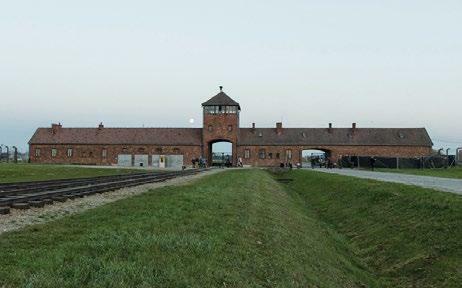
“History, to me, is fascinating. It tells interesting stories of war, religion and human life. It is he never-ending story that keeps adding something new.”
“History is not just our past, but it is what’s happening right now and what will happen in the future.”
“History is interesting!”
“I love history because it is about real people doing real things, whether this be good or bad, there are lessons to be learnt for all of us.”
“History is the study of the past that will allow us to develop a better future.”
Course Content at SJF
A Level Art and Design with OCR.
In Year 12 students will study
• The Tudors 1485-1603. This year will predominantly be spent studying the reigns of Henry VII, Henry VIII and Edward VI.
• Democracy and Nazism: Germany 1918-45. This year will predominantly be spent studying the history of Weimar Germany from the end of World War One to the coming to power of the Nazis
In Year 13 students will study
• The Tutors 1485-1603. Finishing the course by focusing on the reigns of Mary I and Elizabeth I. Religious, economic, governmental and foreign policy issues will be explored. Revision of the whole course will be undertaken before the A Level exam.
• Democracy and Nazism: Germany 1918-45. Finishing the course by studying life in Germany under hte Nazi regime. Economic and social policies will be examined along with Nazi racial policy. Revision of the whole course will be undertaken before the A Level exam.
• A peice of extended coursework based on the one hundred year period from Russain history. This will include the study of figures such as the Russain Tzars, Rasputin and Lenin and will look at significant events such as the murder of Nicholas II and family and the Bolshevik Revolution of 1917
How will the course help me after Sixth Form? evel Art and Design with OCR. Students find history stimulating and a subject which both stretches and informs. Many students go on to study history at university. Russell group Universities see history as a rigorous academic subject. A recent survey found more history graduates then any other type dominated jobs within the top 100 listed companies. History gives you insight, skills of analysis and evaluation. Many historians specialise in fields such as the law or journalism.
Further Information
A Level Art and Design with OCR. Speak to Mr Chance or Mr Bland rchance@smwca.org.uk or lbland@smwca.org.uk https://www.thecompleteuniversityguide.co.uk/courses/ history/7-reasons-to-study-history/
This qualification will introduce learners to the Digital Media sector enabling them to learn and be assessed in practical and relevant ways. The qualification will enable learners to acquire a range of transferable skills and knowledge including: research, communication, creativity, presentation, decision-making and critical-thinking skills. All of which are valued by higher education and highly regarded by employers. The mandatory units are:
Unit 1: Media products and audiences (External Assessment)
Unit 2: Pre-production and planning (External Assessment)
Unit 3: Create a Media Product (Internal Assessment)
The optional units below have been designed to support choices for further study, and employment needs: Optional Units: Social media and globalisation, Journalism and the news industry, The creation and use of sound in media, Advertising media, Plan and pitch a media product, Scripting for media products, Create a personal media profile, Cross-media industry awareness
Course undertaken at St Thomas MoreStudents will build upon those language skills gained at GCSE level. We aim to enable our students to analyse, discuss and establish their own thoughts and views on the subject matter, whilst encouraging them to become involved in wider reading in order to keep up with daily life in France. Lessons include the opportunity to listen for key detail, to read articles and feed back to peers and to speak and give their opinions on topics, through debates and in discussion with the native language assistant. In every lesson there is an opportunity to re-visit previous topics through games and puzzle-solving.
How will I be assessed?
Unit 1: Dispute solving in civil law
• You will be given information about a case in order to carry out legal research, one week before a supervised computer based assessment, marked externally by Pearson.
Unit 2: Investigating aspects of criminal law and the legal system
• An assignment based task that may include both practical and written elements, marked by your teacher
Unit 3:Applying the Law
• You will be given information about two cases in order to carry out legal research, two weeks before a supervised written assessment, marked by your teacher.
All units are assessed using a grading scale of Distinction, Merit and Pass
“My lessons are really interesting, challenging and well structured”
“I like how we are assessed through a method of both project based coursework and assignments”
“I enjoy learning about the law and how it has an impact on everyday life. We have lots of opportunity to debate legal issues in class”
“The skills I am continuing to develop on this course are preparing me for university. It will open a wide range of careers for me”
“I am hoping to continue my legal studies and apply for a degree apprenticeship upon finishing my course.”
Course undertaken at St Thomas MoreWhat is the level of the course I will take?
What level GCSEs do I need?
Minimum of 5 x Grade 5’s at GCSE and Minimum Grade 6 GCSE Maths although a Grade 7 is recommended
All the teachers at A level are very experienced and eager to help with problems. At the moment Mrs Lymer, Mrs Hillerby and Mrs Rushton all teach the course. The course that we follow is EDEXCEL.
Lessons go through examples as well as opportunities for lots of discussion with the teacher and with other pupils in the room. You will have access to a text and online resources to help you on the course
How will the course help me after Sixth Form?
An A Level in Mathematics is a much sought after qualification for entry into a wide variety of full time courses in Higher Education. The door is open to any career with A level Maths but it’s a key subject for careers in Economics, Accountancy, Architecture, Engineering, Medicine, Teaching, Psychology, Environmental Studies, Computing, IT, Banking, Insurance, Financial Advice, Investments and many more. Other work places value very highly workers who are problem solvers.
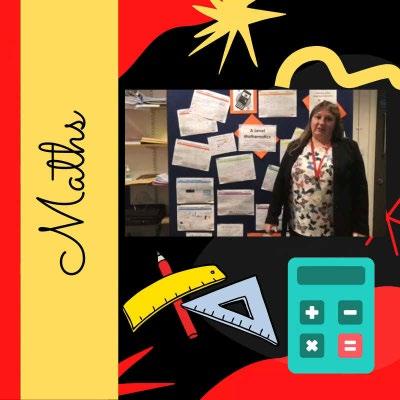
This extends the Algebra and Trigonometry elements from GCSE to a higher level of understanding that enables problems to be solved especially in Mechanics and Statistics.
Mechanics
This enables you to describe mathematically the motion of object and how they respond to forces acting upon them. Many of the ideas that you will meet form an essential introduction to engineering and physics.
Statistics
This enables you to analyse and summarise numerical data in order to arrive at meaningful conclusions. You will extend the range of probability concepts from GSCE. Many of the topics have wider applications in Biology and Geography for the recording of experiments.
You will be assessed at the end of a two year course. The examinations will comprise of 3 equally weighted papers. Papers 1 and 2 will test your knowledge of Pure Mathematics, whilst the final paper will test your knowledge of Mechanics and Statistics.
“ I chose A Level Maths as I enjoyed mathematics at GCSE. Its challenging but I am enjoying it and it is interesting. I chose to stay here as there is a more personal approach.”
“ I chose A Level Maths as I enjoyed solving problems and like the challenge of some of the work”
“I chose A Level Mathematics as I like mathematics at GCSE and to secure a good university place. It exceeded expectations. ”
“I chose mathematics not just because I enjoy it but I have read that it can lead to higher income jobs in the future.”
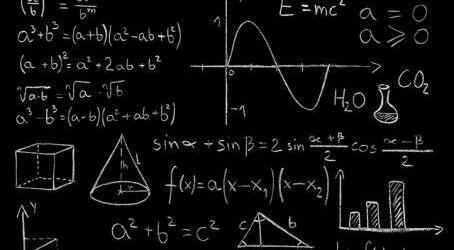
What is the level of the course I will take?
A Level Further Mathematics (Edexcel 9FM0)
AS Level is also available
Core Mathematics (Compulsory)
What level GCSEs do I need?
Minimum of 5 x Grade 5’s at GCSE and Minimum Grade 7 GCSE Maths
This looks at Complex Numbers , Numerical solutions of equations , Series , Matrices , Coordinate systems and Proof by induction. It is a further look at the Pure element at Mathematics A level. Mechanics (Option)
This enables you to describe mathematically the motion of object and how they respond to forces acting upon them. Many of the ideas that you will meet form an essential introduction to engineering and physics.
Statistics(Option)
This enables you to analyse and summarise numerical data in order to arrive at meaningful conclusions. You will extend the range of probability concepts from GSCE. Many of the topics have wider applications in Biology and Geography for the recording of experiments.
Decision (Option)
This looks at mathematical algorithms in terms of where maths can be used to evaluate problems and make mathematical choices.
During the course we work with you and decide on the best options for the non core elements.
Further information
Careers this qualification can lead to:An A Level in Further Mathematics is a much sought after qualification for entry into a wide variety of full time course at Higher Education. The door is open to any career with A level Maths but it’s a key subject for careers in Economics, Accountancy, Architecture, Engineering, Medicine, Teaching, Psychology, Environmental Studies, Computing, IT, Banking, Insurance, Financial Advice, Investments and many more.
Course undertaken at St John FisherWhat is the level of the course I will take?
AS Level Mathematics (Edexcel)
Application of statistics
Correlation Coefficients, variance and standard deviation, linear regression, constructing and interpreting charts and graphs
Simultaneous equations, equations of lines, drawing and solving of inequalities, formulating and solving optimisation problems
Probability Tree diagrams, Venn diagrams, understanding and interpreting risk
Sequences and growth
Population modelling, fibonacci sequence, linear abd quadratic sequences, simple and compound interest
“ I chose Core Maths as I knew teh topics we would cover would further support the work that I do in Psychology. I am interested in a career in sports psychology and being able to use mathematics to analyse various aspects of sport has been both enjoyable and extremely useful”
“I have chosen to study two science subjects at A Level and knew the level of maths would be demanding. I chose core maths to help keep my knowledge and understanding up to date.”
“I always knew that I wanted to persue a career in Computer Science. Core maths has been brilliant in teaching me about programming and using my studies to solve real-life probelms”
Course undertaken at St John FisherWhat is the level of the course I will take?
A Level Music (Eduqas)
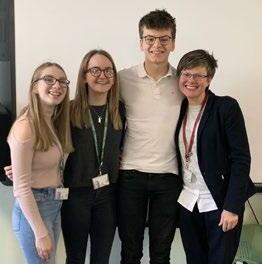
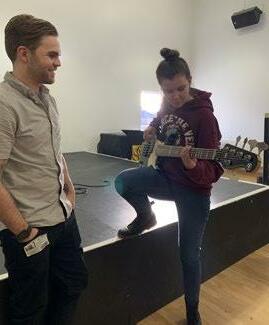
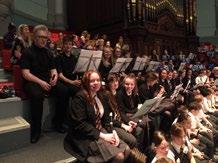
What level GCSEs do I need?
Minimum of 5 x Grade 5’s at GCSE and a minimum Grade 6 in GCSE Music and / or Grade 5 ABRSM Practical and Grade 5 Theory or equivalent.
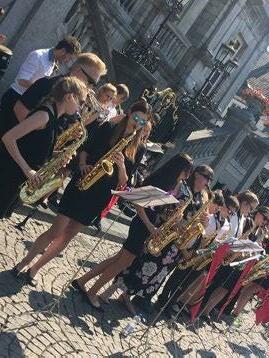
You will study 3 different areas.
The Western Classical Tradition (The Development of the Symphony from 1750-1900) which includes 2 set works. Haydn: Symphon104 in D major, ‘London’ (in detail)
Mendelssohn: Symphony No. 4 in A major, ‘Italian’ (general study)

Into the Twentieth Century which also includes 2 set works.
Poulenc: Trio for Oboe, Bassoon and Piano, Movement II
Debussy: Three Nocturnes, Number 1, Nuages.
You will study in-depth music theory to assist you in the analysis of the above set works alongside performance and compositional techniques.

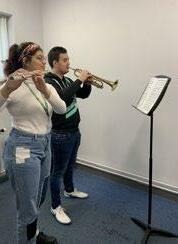
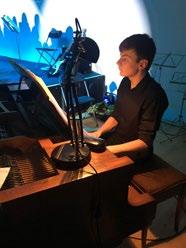
This course is a must if you wish to study Music at University or at a Conservatoire. However, if you don’t want to be a musician or study music at University, A level music is still a smart choice as it is an academic subject which is highly regarded in professions such as medicine, law and accountancy.
Oxford University say the following: “The varied nature of the course enables students to develop highly desirable skills in areas such as self-management, creativity, data analysis, performance, teamwork, problem-solving, and communication, all of which makes you an attractive prospect for potential employers. . . Rather than limiting your career prospects, a music degree opens doors to a wide range of careers”
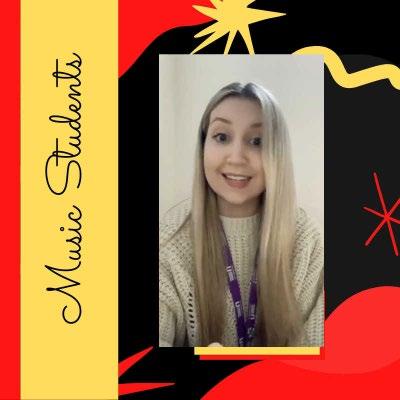
How will the course help me after Sixth Form?
How will I be assessed?
Option A: A 10-12 minute recital consisting of a minimum of 3 pieces. 35% of total A Level
Option B: A 6-8 minute recital consisting of a minimum of 2 pieces. 25% of total A Level
Component 2: Composing
Option A: 2 compositions which have a combined duration of 4-6 minutes. 25% of total A Level
Option B: 3 compositions which have a combined duration of 8-10 minutes. 35% of total A Level
Questions: 1. Set work analysis with a score 2. Extended responses on wider context 3. Unprepared extracts of music with and without a score 4. Comparison questions. This component includes a listening examination. 40% of total A Level
10 X 1 hour lessons a fortnight, split between two specialist teachers.
Lessons follow a number of styles: Music theory and score analysis will be taught full class and in groups to enable you to grasp a full understanding of the techniques used and an understanding of the works themselves. Composition will be taught via a series of one-to-one tutorials within the lessons as this will allow you to develop your own personal style of composition. Performances will take place and be assessed throughout the year.so that you have a full awareness of your performance abilities throughout the course.
What is the level of the course I will take?
BTEC Level 3 National Extended Certificate in Performing Arts (equivalent to one A Level)
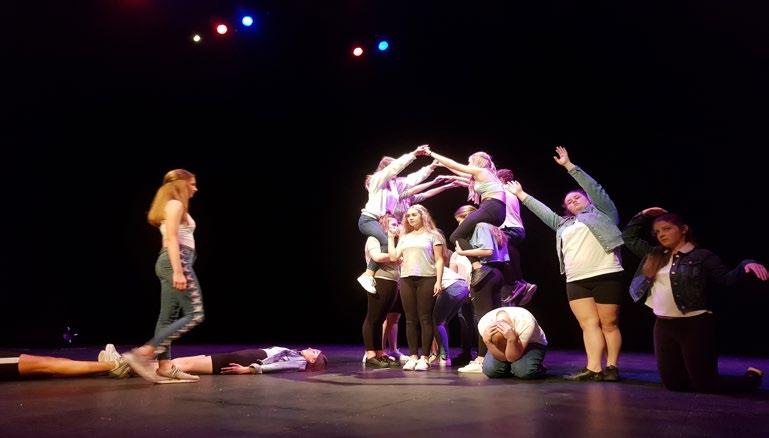
What level GCSEs do I need?
Minimum of 5 x Grade 4’s at GCSE A passion for Performing Arts is essential. A grade 4 or above in any Arts subject is desirable, but as this course is vocational it is more important to have experience or an enthusiasm for the Arts and a desire to perform.
Students are involved in practical workshops based on Dance, Acting and Singing, which are intensive and engaging. They explore the ideas of Contemporary Theatre alongside Musical Theatre performances and often work as an ensemble to create performance projects. Some successful performance projects which have recently been completed are the Theatre in Education (T.I.E.) tour of the primary schools, which involved students devising and directing their own T.I.E. production and performing and leading workshops for the younger students.
Students have also staged their own variety concert - ’Spotlight’, where each student has a chance to create their own work in their preferred style for performance. Students have the opportunity to showcase their work in local and national contexts and take part in their end of year production each summer.
We also have extensive links with universities and professional performing arts companies which leads to collaborative work, workshops and professional performance experiences. Students can be involved in school productions and ‘0 Dance’ at the Regent Theatre, as well as national events.
We organise regular theatre trips to see national and international arts companies. Shows recently seen include ’Sister Act’ and ’Wicked’ as well as annual trips to London’s West End, where we visit Pineapple Studios and take part in workshops with cast members from West End shows.
We always enrich the students’ experience by inviting guest teachers to deliver workshops in their chosen style—often West End performers/choreographers.
We also run an annual trip to Move it, which is a huge Performing Arts event in London where you get the opportunity to take part in professional workshops, watch performances and speak to students studying Performing Arts at the biggest colleges in the UK.
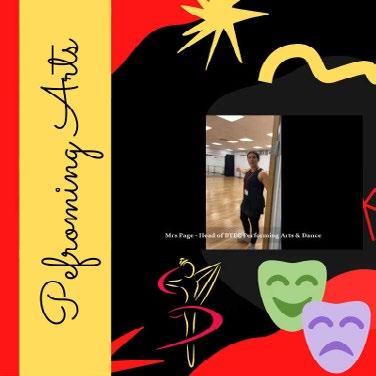
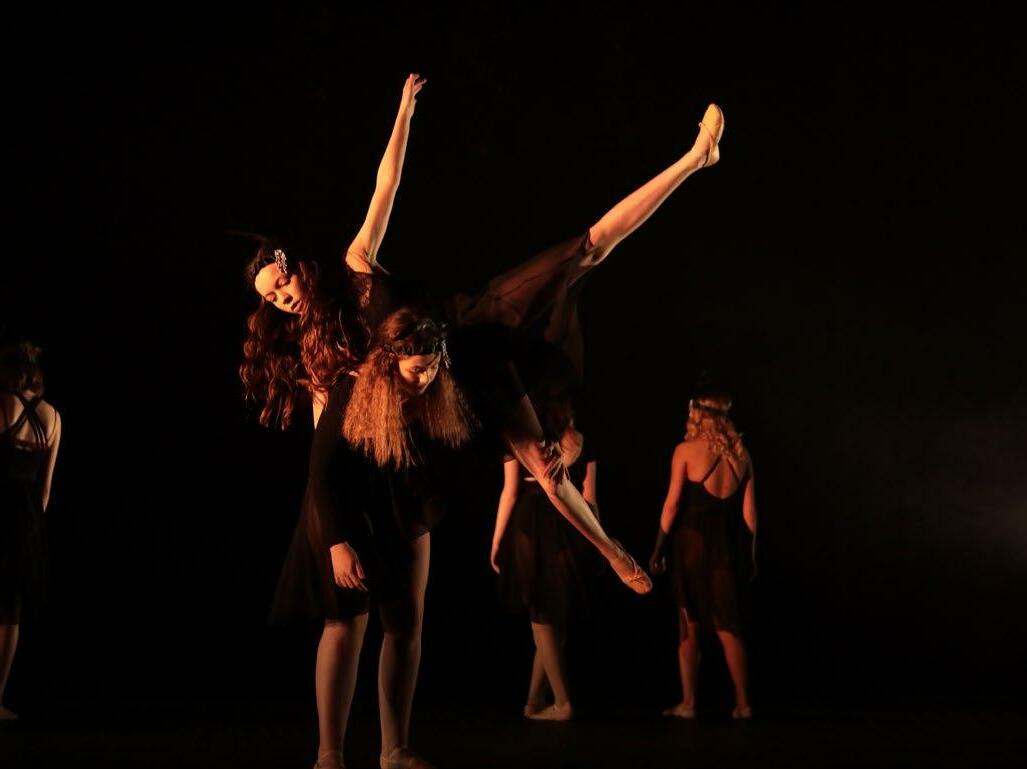
“Creating our own TIE piece and touring it to the primary schools was a fantastic experience, I felt like a professional artist - especially when we led the workshops” afterwards”
“Performing all day is amazing!”
“Now that I’m at university studying Performing Arts I really appreciate the experiences and teaching I received at St Margaret Ward - it has given me a great basis to work from. I miss it so much!”
The performing arts are a major part of the creative and cultural industries in the UK. Overall, the industry contributes £4 billion to the UK economy and is a major employer. The UK’s performing arts sector is vibrant, varied, and hugely successful. It is a growth industry that offers diverse employment opportunities in areas such as dance, drama, music, theatre, film, puppetry, costume design, directing, set design, make-up or special effects, as well as the support functions and roles that bring these art forms to the fore. The requirements of the BTEC Performing Arts course will mean students develop the transferable and higher-order skills that are highly regarded by both HE and employers. For example, through performances, students acquire transferable skills such as team work, collaboration, planning, time management, communication, self- motivation, decision making, self-awareness and interpersonal skills all skills that are valued skill for employability. The course gives excellent opportunities for workplace learning - such as teaching workshops to younger students, performing on professional stages and learning repertoire from current shows.
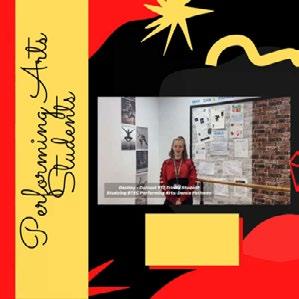
As this is a vocational course, most sessions take the form of practical workshops, often working as a company of performers answering a professional brief or task. Since the course was established we have enjoyed a 100% pass rate, with many students gaining full marks! We work on individual learning programmes and offer extensive support to ensure you reach your full potential. Students often put on their own productions and tour their pieces to local schools, giving a real insight into how the performing arts industry actually works.
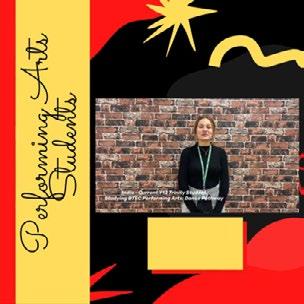
What is the level of the course I will take?
A Level Physics (AQA 7408A)
What level GCSEs do I need?
Minimum of 5 x Grade 5’s at GCSE and a minimum Grade 6 at GCSE Physics or Grade 6-6 at GCSE Combined Science. GCSE Maths grade 6 is desirable.
How will I be assessed?
Paper 1 Assessment: Written exam: 2 hours, 34% of A-level
Measurements and errors, Particles and radiation, Waves, Mechanics and materials, Electricity, Periodic motion.
Paper 2 Assessment: Written exam: 2 hours, 34% of A-level Thermal physics, Further mechanics, Fields, Nuclear physics
Paper 3 Assessment: Written exam: 2 hours, 32% of A-level
All practical skills and data analysis, Astrophysics
Course Content Year 12 Measurements and errors Particles and radiation Waves Mechanics and materials Electricity Year 13 Further mechanics including Periodic motion Thermal physics Fields Nuclear physics Astrophysics
Additionally there is a strong practical and investigative skills component that runs throughout the two year course. There are a number of required practicals set by AQA that contribute to the final certification though there are many other practical opportunities throughout the course over and above these.

“I’m glad that I chose to study with teachers that I have known for a long time. They knew my weaknesses from the start and with their support I am enjoying the course and doing well.”
How will the course help me after Sixth Form?
Physics is a highly respected A level, on the Russell Group’s list of ‘facilitating’ subjects. A good grade in A level Physics demonstrates to an employer that you have analytical and mathematical skills that you can apply to real life situations. There are many possible career paths that it will create for you, for example: Engineering, Medicine, Forensic Science, Astronomy, Cosmology, Electronics, Power generation, Finance and many more.
“I enjoyed Physics at GCSE but A level is in another league”
“A level Physics is challenging but we are well supported and I know the potential rewards at the end are worth it”
A level Physics gives the opportunity to explore the phenomena of the universe and to look at theories that explain what is observed. This subject combines practical skills with theoretical ideas to develop hypotheses to describe the physical universe. You will learn about everything from kinematics to cosmology and many recent developments in fascinating topics, such as particle physics. If you are interested in the limits of space, the beginning of time and everything in between this is the subject for you. Physics is more than a subject – it trains your brain to think beyond boundaries.
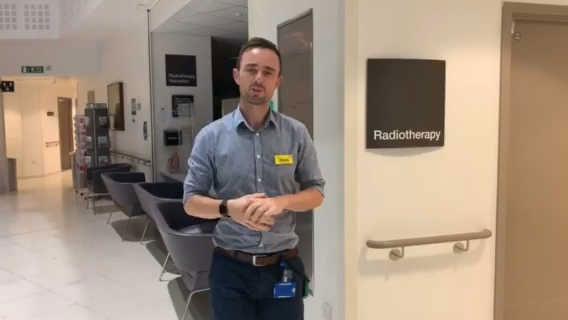
What is the level of the course I will take?
A Level Politics (Edexcel 9PL0)
What level GCSEs do I need?
Minimum of 5 x Grade 5’s at GCSE
Course Content Unit One. People and politics … nature of democracy/ key themes/ debates . Political parties/ pressure groups/ ideologies Unit Two Governing the UK.. Parliament, executive legislative branches of government. Powers of the Prime Minister Cabinet and opposition and the role of the judiciary (courts)
Unit Three Key themes in political analysis Economic policy, social welfare, health and education Law and order. Criminal justice. Environmental policy Ideologies Conservatism, Liberalism, Socialism , Anarchism Extended themes in political analysis Global politics e.g. sovereignty. Interdependence Supernationalism
Theories of global politics The state and globalisation

Many students who have taken the A Level in Government and Politics go on to study Politics at university. From there you might become a researcher, join local or national government or even start on the path to become a future Prime Minister! But there are other job options too. If you fancy a career in journalism, research, the civil service or law then this course is for you . Politics also fits nicely with subjects such as Geography, History, sociology, English and many others. Politics will give you the confidence and knowledge to hold your own at university.
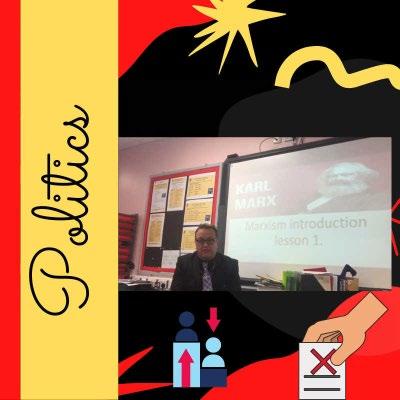
“I thoroughly enjoyed the Politics A-Level course during my time at the Sixth Form, I think that for anyone with even a remote interest it is not only an enjoyable course, with the content being insightful and interesting, but also provides a number of key skills that are suitable for further education, such as at university. Studying Politics at A-Level helped me with enhancing verbal communication skills due to a positive classroom environment which encouraged discussion. Alongside this there was a direct encouragement to analyse and mark my own work and that of my peers, which helped to better my written communication and taught me how to structure and articulate my writing, allowing me to get the best mark possible. These skills are transferrable, even if you don’t intend to further your political education they go hand in hand with helping someone to effectively receiving tuition in a number of other disciplines.
I had full support from my teachers throughout, which helped me to get the most out of the course and retain as much knowledge as possible. Being able to query any aspect of the content that I did not understand and receiving an explanation was invaluable. The skills I learnt during my study of Politics at the Sixth Form have given me a strong base for my time at University where I study Politics Single Honours. Being given the chance to study Politics at A-level is an opportunity not to be missed.“
Daniel studying politics Keele University
“Studying politics was a real eye opener for me, I took the subject not really knowing what to expect but soon learnt to love it.. I really enjoyed finding out how ideas have developed and shape the world today.”
Honor studying political science at Liverpool University.
“This is the one subject that has taught me so much about my own beliefs and values . The sheer scope of the subject meant I could study everything form how the country is run to the changing debates within environmental and feminist movements and how ideas are constantly evolving.“
Noor studying politics and international relations at York University
The department organises a full day out in London (summer term Y12) visiting parliament and other sites of interest. Previously this included a guided Jack the Ripper tour of the east end and lunch at Tower bridge, a full tour of both Houses of Parliament and retail therapy in Covent Garden . This trip is subsidised by parliament
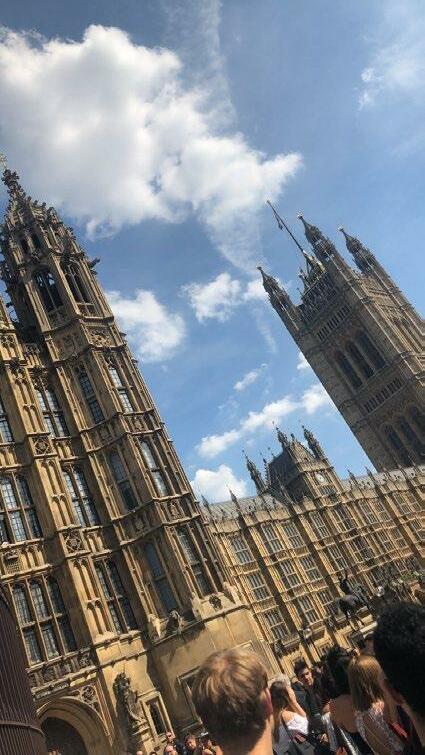
Politics touches every aspect of our lives. And whilst we might criticise governments for some of their policies, it has to be better than having no government at all. Society just wouldn’t function without an elected body to decide, For example ,what taxes will be levied, how those taxes will be spent on things like health and education or how the country will be defended.
Contact Mr Chance / Mr Bland rchance@smwca.org. uk or lbland@smmwca.org.uk
What is the level of the course I will take?
A Level Product Design (AQA)
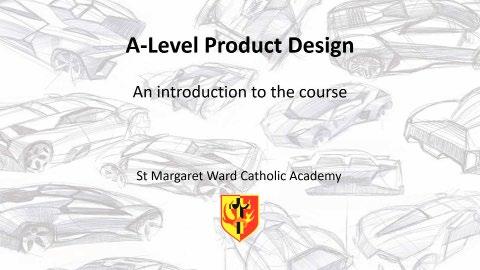
What level GCSEs do I need?
Product Design requires students to engage in both practical and theoretical study; technical principles and designing and making principles. Students must also demonstrate Maths and Science skills.
Minimum of 5 x Grade 5’s at GCSE If you have not taken this subject at GCSE, please speak to a member of staff
This creative and thought provoking qualification gives students the practical skills, theoretical knowledge and confidence to succeed in a number of careers. Especially those in the creative industries. Students will investigate historical, social, cultural, environmental and economic influences on design and technology, whilst enjoying opportunities to put their learning in to practice by producing prototypes of their choice.
Students will gain a real understanding of what it means to be a designer, alongside the knowledge and skills sought by higher education and employers. Students should develop the ability to draw on and apply a range of skills and knowledge from other subject areas to inform their decisions in design and the application or development of technology. There are clear links between aspects of the specification and other subject areas such as: Computer Science, Business Studies, Art and Design and History; and so on.
Students will be encouraged to take design risks; showing innovation and enterprise whilst considering their role as responsible designers and citizens. They will develop intellectual curiosity about the design and manufacture of products and systems, and their impact on daily life and the wider world. They will work collaboratively to develop and refine their ideas, responding to feedback from users, peers and expert practitioners whilst gaining an insight into the creative, engineering and/or manufacturing industries.
Students will be encouraged to develop the capacity to think creatively, innovatively and critically through focused research and the exploration of design opportunities arising from the needs, wants and values of users and clients. They should develop an in depth knowledge and experience of real world contexts for design and technological activity whilst integrating an in-depth knowledge and understanding of materials, components and processes associated with the creation of products that can be tested and evaluated in use.
Students should be able to make informed decisions which lead to the creation and analysis of a design concept which uses a range of skills and knowledge from other subject areas, including Maths and Science, to inform decisions in design and the application or development of technology. This underpins the ability to work safely and skilfully in the production of high quality prototypes/products.


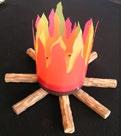
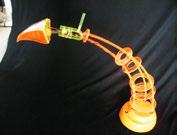
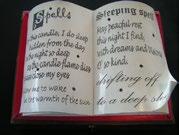
“‘Product Design gave me a chance to be creative as all my other subjects included a lot of writing and no making!”
“I really enjoyed making a realistic product which actually works”
“Some of the most highly paid and well respected jobs are in Product Design”
How will the course help me after Sixth Form?
Level Product Design can lead to many post 18 courses from Product and Transport Design & Manufacturing, Architecture, Engineering and Product Development through to careers in the Forces and Scientific Industries.
Information
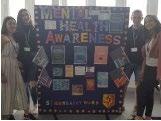
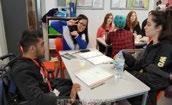
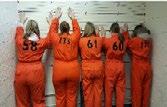
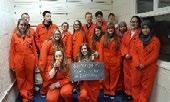

Psychology is the scientific study of behaviour and the mind. It looks to examine the way that people think, feel and behave in a systematic way by reviewing scientific research into aspects of behaviour and designing, conducting and analysing our own investigations.
The course is divided into three units: Research methods—introduces psychological research methods where students are required to design and conduct their own research, analyse their data and draw conclusions;
Psychological themes through core studies—introduces 20 key themes and core studies across the 5 main areas in Psychology .(See topics to be covered). The inclusion of both classic and contemporary studies enable students to see the way that psychological knowledge and understanding changes over time to reflect changes in society and culture;
Applied psychology—introduces a new and engaging compulsory section on issues in mental health and an exciting range of options including child psychology and criminal psychology, allowing students to gain an insight into how theory can be applied in real world situations.
Core studies—cognitive psychology (memory and attention), developmental psychology (external influences and morality), physiological psychology (regions of the brain and brain plasticity), individual differences (understanding disorders and measuring differences) and social psychology (responses to authority figures and factors influencing helping).
Issues in mental health— the historical context of mental health, defining abnormality, diagnosing and characteristics of disorders, along with biological, cognitive and social explanations and treatments based on them.
Criminal psychology looks at biological, cognitive and social aspects of offending and influences on it and the way it’s managed, whilst child psychology looks at the biological, cognitive and social factors associated with early development.
There will be three two hours exams to be taken at the end of the course in June 2023 — one for each of the three units: Research methods (30%), Psychological Issues through the key studies (35%)and Applied Psychology (35%).
You will be examined using a range of assessment techniques including multiple choice questions, short answer questions and extended written pieces.
“I really enjoy Psychology at A level. The teacher makes the lessons exciting and I’m learning fascinating things about behaviour”
Psychology helps you understand the theory behind why people act in certain ways. Staff are very enthusiastic about the subject”.
“It’s like a cross between Science and RE… but better!”
“There’s tons of reading, writing and remembering but it’s really interesting. It helps you understand everyday behaviours and why people think and behave the way they do.”
Psychology is invaluable in helping us understand people and their behaviour since we all have to deal with other people in some capacity, no matter what career we have in mind. Many students choose to study for a degree in Psychology at university with a view to undertaking post-graduate study and career opportunities in fields such as Clinical, Health, Child, Sports and Forensic Psychology.
You will learn using a variety of teaching and learning methods including presentations, group-work, role-play, posters, debates and discussions. However, Psychology is a very theoretical subject so there is lots of reading and writing involved too. Often, this is done independently, both in class and at home, and you are assessed regularly to check learning. In addition, there are opportunities to engage in enrichment activities such as the Mental Health Peer Mentoring programme, Emotion Coaching and educational visits, including watching a real life trial or sentencing hearing at Manchester Crown Court and a fun, interactive visit to Shrewsbury’s ‘Dana’ Jail.
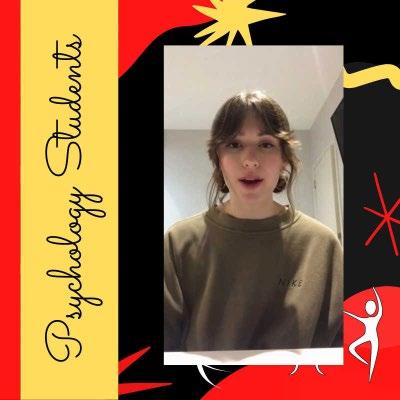
What is the level of the course I will take?
A Level Religious Studies (OCR H573)
(Philosophy, Ethics and Developments in Christian thought)
What level GCSEs do I need?
Minimum of 5 x Grade 5’s at GCSE and Grade 6 at GCSE in Religious Studies
In Y12 you will study:
Philosophy: Philosophical Influences. Soul, mind and body. Arguments based on observation. Arguments based on reason. Religious experience. The problem of evil.
Ethics: Natural Moral Law. Situation ethics. Kantian ethics. Utilitarianism. Euthanasia. Business Ethics.
Developments in Christian thought: Augustine’s teaching on human nature. Death and the afterlife. Knowledge of God’s existence. The person of Jesus Christ. Christian moral principles. Christian moral action.
In Y13 you will study:
Philosophy: The nature or attributes of God. Religious language.
Ethics: Meta ethical theories. The role of conscience. Sexual ethics.
Developments in Christian thought: Religious pluralism and theology. Religious pluralism and society. Gender and society. Gender and theology. The challenge of secularism. Liberation theology and Marx.

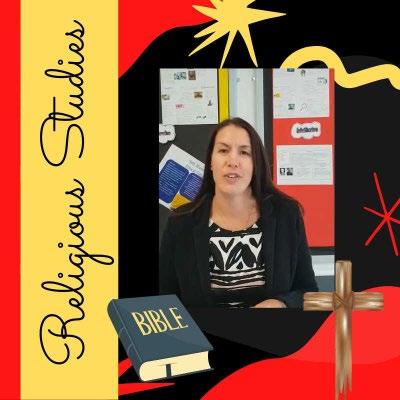
A Level philosophy and ethics is not for the fainthearted. It is a rigorous, demanding and enjoyable course. It is also an A’ level that can definitely get you places. Many employees, public services, businesses and academics appreciate the key skills this subject offers and the opportunity to develop communication, enquiry, and problem solving are obviously advantageous for further education, the workplace and beyond. In fact, it’s surprising just how many career paths philosophy and ethics can help with. Doing philosophy and ethics can make a significant contribution to any job that requires you to think well, that is clearly and rigorously. Big business – the City firms, the banks, the management consultancies, the chartered accountants – are enthusiastic about people who’ve done philosophy and ethics because they know how to think clearly. Philosophy and ethics students also go into law, politics, medicine and the civil service. Journalism is also a logical career path, as is advertising and of course education!
“I am really enjoying the course and how it relates to life. I find it challenging but its really interesting- I recommend!”
“I was expecting it to be good but not this good. I recommend it to anyone”
“I enjoy RS because it allows me to gain a deeper understanding of I things I can encounter in everyday life”
“The work is fun and interesting– I do not regret taking it”
“ I enjoy RS because it makes me think and it is engaging because the topics are interesting and relevant.”
How will the course help me after Sixth Form?
There are 3 exams at the end of the Y13:
Paper 1: Philosophy of Religion
Paper 2: Religion and Ethics
Paper 3: Developments in Christian thought Further Information
The course is taught over 10 periods a fortnight by three specialist teachers.
All of our students have the opportunity to attend the A’ Level Religious Studies conference trip each year. This is a particularly beneficial trip, helping students to understand the requirements of the exam, as explained by examiners.

What is the level of the course I will take?
A Level Sociology (OCR H580)
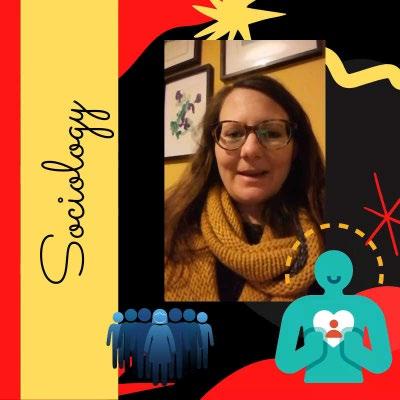
What level GCSEs do I need?
Minimum of 5 x Grade 5’s at GCSE
Students study the key concepts of culture, socialisation and identity whilst also exploring how sociologists collect their data. Families and Relationships Studying the role of the family as a central institution of socialisation and main transmitter of culture in UK society.
Students explore the methods of sociological enquiry and will conduct their own small scale research projects to help explain patterns of inequality in the contemporary UK.
We study the impact of the development of digital forms of communication such as Facebook and other social media on society.
The social construction of crime and deviance, the role of agents of social control and the law are studied as well as theoretical explanations of crime and deviance. We look at who commits crime and how it can be reduced.
Students will have the opportunity to experience a wide variety of different learning styles, from the traditional classroom based lessons, to doing actual sociological research in ’the field’.
Students will also be expected to keep up to date with current affairs by watching good news programmes and reading quality newspapers.
Visits are organised annually, including; Manchester Crown Court to watch court proceedings in practice; London and The Houses of Parliament to get a greater insight into democracy in action.
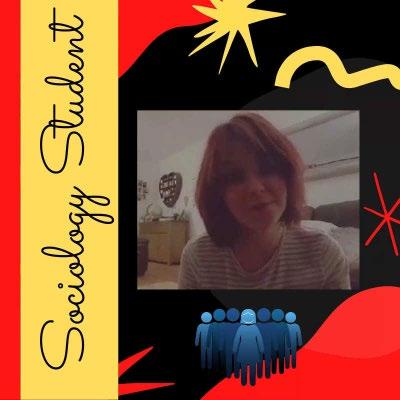
“After studying Sociology, you will never look at the world in the same way again!”
“I never realised you could study social media and Facebook!”
The qualifications aim to develop your students’ knowledge, understanding and skills of the principles of Sport and Physical Activity. Your students will gain an insight into the sector as they investigate opportunities for delivering sport and physical activity to a wide range of participants, whether it is to mobilise sedentary people to improve their health and wellbeing or to support regular participants to improve their performance and fitness, all done in a safe and professional environment. In doing so, students will also gain core skills required for employment or further study in the sector such as communication, analysis, organisation and adaptation. Designed in collaboration with experts spanning the breadth of the sector, the Level 3 Cambridge Technicals in Sport and Physical Activity focus on the requirements that today’s universities and employers demand. Your students will practically apply their skills and knowledge in preparation for further study or the workplace.
A wide range of centre assessed units with practical and wider project-based assessment opportunities, as well
as examined units on the body systems and the long and short term impacts of sport and physical activity; how sport is organised and the purpose of sports development; health and safety requirements in sport and physical activity; the purpose of, and how to conduct, research in sport and physical activity; and how businesses in sport are organised and what success looks like to them. Your students will also develop professional, personal and social skills through interaction with peers, stakeholders and clients, as well as theoretical knowledge and understanding to underpin these skills. These support the transferable skills required by universities and employers such as communication, problem solving, time management, research and analytical skills. Students will consider the barriers to and the effects and benefits of sport and physical activity across all age ranges and social groups, including people with disabilities and BAME, so they can tailor their approach depending on the person, people or situation they’re working with to ensure inclusivity. They’ll also learn how to work in a safe and effective way, protecting themselves and those they’re working with from injury or harm.
How will the course help me after Sixth Form?
These are vocational qualifications designed to lead you into employment within the sport and physical activity sector.
Course undertaken at St Thomas MoreWhat is the level of the course I will take?
BTEC Level 3 National Extended Certificate in Travel and Tourism (equivalent to one A Level)
What level GCSEs do I need?
Minimum of 5 x Grade 4’s at GCSE
What will I learn?
Covers a range of topics across the industry and provides you with the knowledge,understanding and the skills required to move into further employment and training. If you are interested in travel, like meeting people and enjoy planning and organising, this course will help get into a career in this fast moving industry. Indeed since 2010 tourism has been the fastest growing sector in the UK in employment terms; with Britain forecasted to have a tourism industry worth over £257 billion by 2025
Topics covered include investigating and researching the breath of Travel and Tourism, the importance of providing great Customer Services, along with investigating the contribution Visitor Attractions make to this growing economy. You will also be looking to gain industry-based.experience. Assessment methods include both course work and exams
Course undertaken at St John Fisher




